This article explores the various types of legal cases in the U.S. and offers expert guidance on finding the most qualified lawyers in Dallas, Texas. The legal landscape can be complex, and understanding the types of cases and the attorneys who specialize in them is crucial for anyone seeking justice or resolution.
Understanding Personal Injury Cases
Personal injury cases are among the most prevalent legal disputes in the U.S., often arising from incidents such as car accidents, slip and falls, and workplace injuries. If you have been injured due to someone else’s negligence, hiring a qualified personal injury lawyer is essential. Look for attorneys who have a proven track record of winning cases and securing substantial settlements. Websites like Avvo and Lawyers.com can help you find local attorneys with excellent reviews.
Medical Malpractice: Navigating Complex Legal Waters
Medical malpractice cases involve claims against healthcare providers who fail to provide the standard of care, resulting in patient harm. To find an experienced medical malpractice attorney, seek out those who specialize in healthcare law and have a history of successful verdicts. Credentials such as board certifications and memberships in professional organizations can indicate expertise. Red flags to avoid include attorneys who make unrealistic promises about case outcomes.
Breach of Contract: Protecting Your Legal Rights
Breach of contract cases arise when one party fails to fulfill their obligations under a contract. A lawyer with expertise in contract law can help you navigate these disputes effectively. When searching for an attorney, consider their experience in similar cases and their negotiation skills. Look for reviews on platforms like Yelp to gauge client satisfaction.
Property Disputes: Resolving Conflicts Over Real Estate
Property disputes can stem from issues related to boundaries, ownership rights, or landlord-tenant conflicts. A knowledgeable real estate attorney can help resolve these issues efficiently. When selecting a lawyer, verify their experience in property law and ask for references from past clients. It’s also beneficial to choose someone familiar with local zoning laws and regulations.
Landlord-Tenant Disputes: Know Your Rights
Landlord-tenant disputes often involve evictions, lease violations, and security deposits. Understanding your rights is crucial, and hiring a competent lawyer can make a significant difference in the outcome. Look for attorneys who specialize in tenant rights and have familiarity with local housing laws. Websites like Nolo offer resources on tenant rights and can help you find a qualified attorney.
Defamation: Protecting Your Reputation
Defamation cases, including libel and slander, involve false statements that harm an individual’s reputation. Finding a skilled attorney is crucial for navigating these sensitive cases. Look for lawyers who specialize in media law and have experience handling defamation cases. Ensure they have a solid understanding of the First Amendment and related legal principles.
Employment Disputes: Advocating for Your Rights
Employment disputes can encompass wrongful termination, discrimination, and wage issues. An experienced employment lawyer can help you understand your rights and pursue justice. When hiring an attorney, check their history of handling employment law cases and their success rates. Platforms like Glassdoor can provide insights into an attorney’s reputation and client satisfaction.
Product Liability: Holding Manufacturers Accountable
Product liability cases arise when defective products cause harm to consumers. An attorney specializing in this area can help you seek compensation for your injuries. Look for lawyers with experience in consumer protection law and a history of winning product liability cases. Be cautious of attorneys who lack transparency about their fees and case strategies.
Wrongful Death: Seeking Justice for Loved Ones
Wrongful death cases involve claims against parties whose negligence or misconduct led to a person’s death. Finding a compassionate and skilled attorney is vital in these sensitive matters. Seek out lawyers who have experience in wrongful death cases and can demonstrate empathy and understanding. Recommendations from trusted sources can also be beneficial.
Class Action Lawsuits: Joining Forces for Justice
Class action lawsuits allow groups of individuals to sue a defendant collectively. Finding a lawyer experienced in class actions can help ensure your case is handled effectively. Look for attorneys who have successfully led class action suits and have a strong understanding of the legal complexities involved.
Assault and Battery: Understanding Criminal Charges
Assault and battery cases involve intentional harm to another person. Hiring a knowledgeable criminal defense attorney is essential for navigating these serious charges. When seeking a defense lawyer, prioritize those with experience in criminal law and a strong track record of defending similar cases.
Drug Offenses: Defending Against Serious Charges
Drug offenses encompass a wide range of illegal activities. A skilled attorney can provide effective defense strategies to protect your rights and future. Look for lawyers who specialize in drug law and have experience with the specific charges you face.
Theft and Burglary: Legal Consequences and Defense
Theft and burglary cases involve the unlawful taking of property. Understanding the legal implications and hiring a competent lawyer is crucial for a strong defense. Seek out attorneys who have a background in criminal defense and can explain the potential outcomes of your case.
Fraud and Embezzlement: Protecting Your Interests
Fraud and embezzlement cases involve financial deception. An attorney with expertise in white-collar crime can help you navigate these complex legal issues. Look for lawyers who have successfully handled similar cases and can provide references.
Murder and Homicide: The Gravity of Criminal Charges
Murder and homicide cases carry severe consequences. Finding an experienced criminal defense attorney is critical for anyone facing such serious charges. Ensure that the attorney has a strong background in criminal law and a successful history of defending high-stakes cases.
DUI/DWI: Navigating the Legal System
DUI/DWI charges can have significant legal repercussions. A knowledgeable attorney can help you understand your options and navigate the complexities of your case. Look for lawyers who specialize in DUI defense and have a proven track record of reducing charges or securing favorable outcomes.
Domestic Violence: Seeking Protection and Justice
Domestic violence cases require sensitive handling and legal expertise. Hiring an attorney experienced in these matters is essential for ensuring your safety and rights. Seek lawyers who are familiar with local domestic violence laws and can provide support throughout the legal process.
Sexual Offenses: Defending Against Serious Allegations
Sexual offense cases involve serious allegations that can have lasting impacts. A skilled attorney can provide the necessary defense and support throughout the legal process. Look for lawyers with experience in sexual offense cases and a strong understanding of the legal complexities involved.
Cybercrime: Understanding the Digital Legal Landscape
Cybercrime encompasses various illegal activities conducted online. An attorney with expertise in internet law can help you navigate these complex cases effectively. Ensure that the lawyer has a solid understanding of technology and cyber laws to provide the best defense.
White Collar Crime: Navigating Complex Legal Issues
White-collar crime involves non-violent offenses for financial gain. A knowledgeable attorney can help you understand the intricacies of your case and advocate for your rights. Seek out lawyers with experience in white-collar crime and a history of successful outcomes.
Divorce: Navigating the Legal Process
Divorce cases can be emotionally charged and legally complex. Finding a compassionate and experienced family law attorney is crucial for navigating this challenging process. Look for lawyers who specialize in family law and have a track record of successful divorce settlements.
Child Custody: Advocating for Your Child’s Best Interests
Child custody disputes require careful legal navigation. An attorney experienced in family law can help you advocate for your child’s best interests during custody proceedings. Seek out lawyers who prioritize mediation and collaboration, as these approaches can lead to more amicable outcomes.
Child Support: Ensuring Fair Financial Support
Child support cases involve financial obligations for raising children. Understanding the legal framework and hiring a knowledgeable attorney can help ensure fair arrangements. Look for lawyers who have experience in child support cases and can provide guidance on state-specific laws.
Spousal Support (Alimony): Understanding Your Rights
Spousal support cases address financial support post-divorce. A skilled attorney can help you navigate the complexities of alimony and ensure your rights are protected. Seek lawyers who can clearly explain the factors that influence spousal support decisions.
Adoption: Navigating the Legal Process
Adoption involves legal procedures to establish a parent-child relationship. An attorney experienced in adoption law can guide you through the necessary steps. Look for lawyers who have successfully handled adoption cases and can provide references from satisfied clients.
Paternity: Establishing Legal Parentage
Paternity cases involve establishing legal parentage for various reasons, including child support and custody. A knowledgeable attorney can help you navigate this sensitive issue. Seek lawyers with experience in family law and a strong understanding of paternity laws.
Guardianship: Protecting Vulnerable Individuals
Guardianship cases involve legal arrangements for individuals unable to care for themselves. An attorney can assist in navigating the legal requirements and ensuring the best interests of the individual are met. Look for lawyers who specialize in guardianship and have a compassionate approach.
Immigration Cases: Navigating Complex Regulations
Immigration cases can be complex and require expert legal guidance. Finding an attorney experienced in immigration law is essential for navigating the process successfully. Seek out lawyers who stay updated on immigration policies and have a successful history of handling similar cases.
Bankruptcy: Understanding Your Options
Bankruptcy cases involve legal processes for individuals or businesses unable to repay debts. An experienced bankruptcy attorney can help you understand your options and guide you through the process. Look for lawyers with a solid understanding of bankruptcy laws and a track record of successful outcomes.
Patent and Trademark Disputes: Protecting Intellectual Property
Patent and trademark disputes involve legal conflicts over intellectual property rights. Hiring an attorney with expertise in intellectual property law is crucial for protecting your rights. Seek out lawyers who have successfully handled similar cases and can provide references from satisfied clients.
Federal Tax Disputes: Navigating Complex Regulations
Federal tax disputes involve disagreements with the IRS. A knowledgeable tax attorney can help you navigate these complex issues and advocate for your rights. Look for lawyers who specialize in tax law and have a successful history of resolving tax disputes.
Civil Rights Violations: Seeking Justice
Civil rights violations involve breaches of individual rights protected by law. An attorney experienced in civil rights law can help you seek justice and hold violators accountable. Seek lawyers who have a strong commitment to civil rights and a history of successful advocacy.
Interstate or International Crimes: Navigating Jurisdictional Complexities
Interstate or international crimes involve legal issues that cross state or national borders. An experienced attorney can help navigate the complexities of these cases effectively. Look for lawyers with experience in federal law and a successful history of handling interstate or international cases.
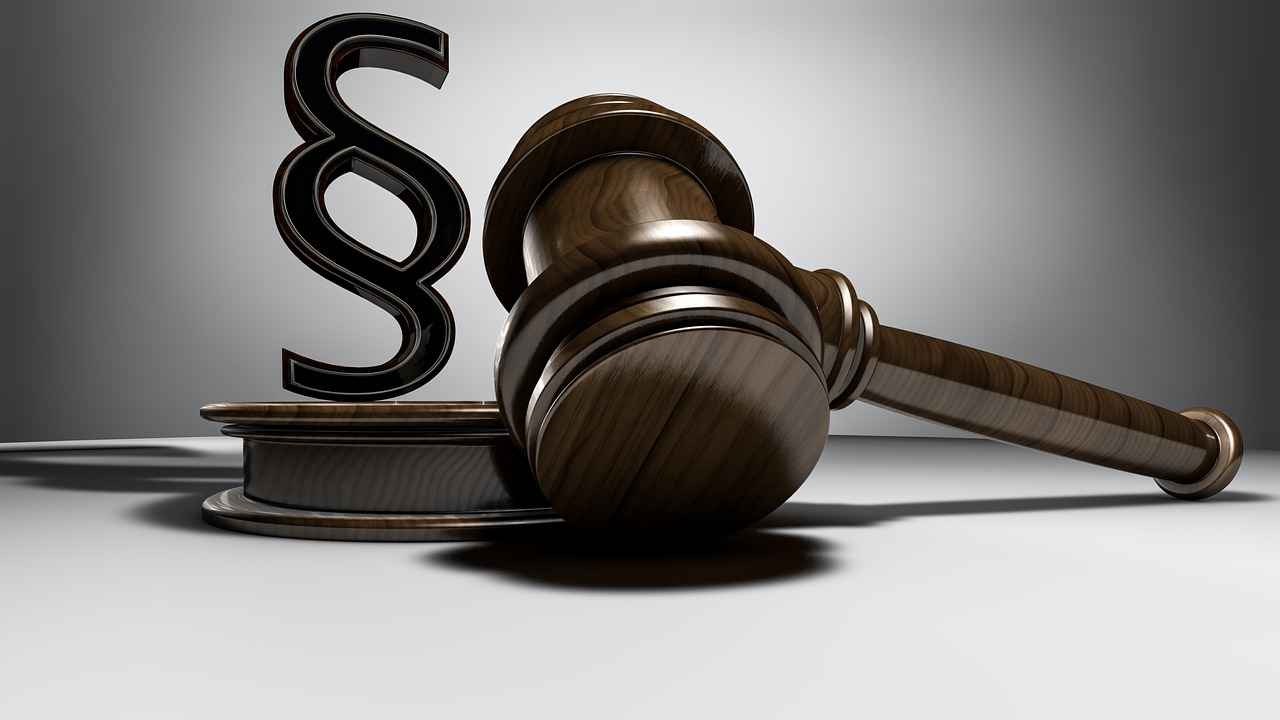
Understanding Personal Injury Cases
Personal injury cases are among the most prevalent legal disputes in the United States, often arising from incidents where individuals suffer harm due to the negligence or intentional actions of others. These cases can encompass a wide range of situations, including car accidents, slip and falls, and medical malpractice. Understanding the intricacies of personal injury law is crucial for anyone seeking compensation for their injuries.
When it comes to finding a qualified attorney for a personal injury case, several important factors should be considered:
- Experience and Specialization: Look for attorneys who specialize in personal injury law and have a proven track record of handling similar cases. An attorney with years of experience in this field will be more equipped to navigate the complexities of your case.
- Reputation: Research online reviews and testimonials from previous clients. Websites like Avvo, Martindale-Hubbell, and Google Reviews are excellent resources for gauging an attorney’s reputation.
- Initial Consultation: Most personal injury attorneys offer free initial consultations. Use this opportunity to ask questions about their experience, approach to your case, and fees.
- Contingency Fees: Many personal injury lawyers work on a contingency fee basis, meaning they only get paid if you win your case. Ensure you understand their fee structure before signing any agreements.
- Communication: A good attorney should communicate clearly and regularly about your case. Make sure you feel comfortable asking questions and that they provide satisfactory answers.
In major metropolitan areas like New York City, Los Angeles, and Chicago, finding a qualified personal injury attorney can be competitive. Here are some proven methods for locating the right legal professional:
- Referrals: Ask friends, family, or colleagues for recommendations. Personal referrals can lead you to trustworthy attorneys with proven success rates.
- Online Legal Directories: Utilize online platforms such as FindLaw, Justia, and Lawyers.com to search for personal injury attorneys in your area.
- Local Bar Association: Contact your local or state bar association for referrals to qualified attorneys who specialize in personal injury law.
- Social Media and Forums: Platforms like LinkedIn and legal forums can provide insights into attorneys’ reputations and areas of expertise.
While searching for an attorney, be aware of potential red flags. Avoid lawyers who:
- Guarantee a specific outcome.
- Pressure you into signing contracts quickly.
- Have a history of disciplinary actions or complaints.
- Are difficult to reach or unresponsive to your inquiries.
In conclusion, understanding personal injury cases and knowing how to find a qualified attorney is essential for anyone seeking justice and compensation for their injuries. By following the guidelines outlined above, individuals can make informed decisions and increase their chances of a successful outcome in their personal injury claims.

Medical Malpractice: Navigating Complex Legal Waters
Medical malpractice is a critical area of law that arises when healthcare professionals fail to adhere to the accepted standards of care, resulting in significant harm to patients. This can include a range of issues such as misdiagnosis, surgical errors, medication mistakes, and inadequate follow-up care. The complexity of these cases often necessitates specialized legal expertise, making it essential for victims to find an experienced attorney who understands the intricacies of medical malpractice law.
When seeking to navigate the challenging waters of medical malpractice, there are several key factors to consider:
- Experience and Specialization: Look for attorneys who specialize in medical malpractice cases. Their experience in this specific field can be invaluable, as they will be familiar with the nuances of medical standards and the legal framework surrounding malpractice claims.
- Track Record: Evaluate the attorney’s success rate in handling similar cases. A strong history of favorable outcomes can indicate their competence and ability to advocate effectively on your behalf.
- Reputation: Research online reviews and testimonials from previous clients. A reputable attorney will have positive feedback regarding their professionalism, communication, and results.
- Consultation: Most attorneys offer free initial consultations. Use this opportunity to ask questions about their experience, approach to your case, and fee structure.
- Fees: Understand the attorney’s fee arrangement. Many medical malpractice attorneys work on a contingency fee basis, meaning they only get paid if you win your case. This can alleviate financial pressure while pursuing your claim.
- Communication: Choose an attorney who communicates clearly and promptly. You want someone who will keep you informed throughout the process and address your concerns effectively.
In metropolitan areas such as New York City, Los Angeles, and Chicago, the competition among legal professionals can be intense. Utilize platforms like Avvo, FindLaw, and Lawyers.com to compare potential attorneys. These platforms provide detailed profiles, including areas of expertise, client reviews, and disciplinary records.
As you search for a qualified medical malpractice attorney, be wary of red flags such as:
- Attorneys who guarantee specific outcomes — no lawyer can predict the result of a case.
- Pressure tactics to sign contracts quickly without fully understanding the terms.
- Limited or no online presence, which may indicate a lack of credibility or experience.
Understanding the legal process involved in medical malpractice cases is also crucial. These cases often require expert testimony from medical professionals to establish that the standard of care was not met. A competent attorney will know how to gather and present this evidence effectively.
In summary, navigating the complex landscape of medical malpractice requires careful consideration and thorough research. By focusing on the right credentials, asking the right questions, and being aware of potential pitfalls, you can find a qualified attorney who will advocate for your rights and help you seek the compensation you deserve.

Breach of Contract: Protecting Your Legal Rights
Breach of contract cases are a significant aspect of contract law, representing disputes that arise when one party fails to fulfill its obligations as outlined in an agreement. These cases can involve various types of contracts, including business agreements, real estate transactions, and employment contracts. Understanding the nuances of breach of contract is essential for both individuals and businesses to protect their legal rights.
When a breach occurs, the non-breaching party may seek remedies, which can include monetary damages, specific performance, or cancellation of the contract. The complexities of these cases often necessitate the involvement of an attorney who specializes in contract law. A skilled attorney can help you navigate the intricacies of your situation, ensuring that your rights are upheld throughout the legal process.
To find the most qualified attorney for a breach of contract case, consider the following steps:
- Research and Referrals: Start by seeking referrals from friends, family, or colleagues who have had positive experiences with attorneys in similar cases. Online legal directories and bar association websites can also provide valuable resources.
- Check Credentials: Look for attorneys who have a strong background in contract law and relevant experience in handling breach of contract cases. Verify their educational qualifications, years of practice, and any special certifications they may hold.
- Consultation: Many attorneys offer initial consultations, allowing you to discuss your case and gauge their expertise. Use this opportunity to ask about their approach to handling breach of contract cases and their success rates.
- Review Client Testimonials: Reading reviews and testimonials from previous clients can provide insight into an attorney’s effectiveness and client satisfaction. Pay attention to feedback regarding communication, responsiveness, and overall results.
- Assess Communication Skills: Effective communication is vital in legal matters. Choose an attorney who explains complex legal concepts clearly and keeps you informed throughout the process.
- Understand Fees and Costs: Before hiring an attorney, ensure you understand their fee structure. Some attorneys charge hourly rates, while others may work on a contingency basis. Be clear about any potential costs involved in your case.
In major metropolitan areas like New York City, Los Angeles, and Chicago, the competition among legal professionals can be intense. Therefore, it is crucial to take the time to find an attorney who not only has the right qualifications but also aligns with your specific needs and goals. Look for attorneys who are members of professional organizations such as the American Bar Association or local bar associations, as these affiliations often indicate a commitment to ethical standards and ongoing education.
Additionally, be wary of red flags when selecting an attorney. These may include:
- Promises of guaranteed outcomes or unrealistic expectations.
- A lack of transparency regarding fees and billing practices.
- Negative reviews or a history of disciplinary actions.
- Poor communication or difficulty in reaching them.
By following these guidelines, you can increase your chances of finding a trustworthy and competent attorney to handle your breach of contract case, ensuring that your legal rights are protected and that you receive the best possible outcome.

Property Disputes: Resolving Conflicts Over Real Estate
Property disputes can be a significant source of stress and conflict for homeowners and real estate investors alike. These disputes often arise from various issues, including boundary disagreements, ownership rights, and zoning regulations. Understanding the complexities of property law and knowing how to navigate these disputes is crucial for a favorable outcome.
In many cases, property disputes stem from unclear property lines. This can occur when a survey is not conducted, or when neighboring properties have overlapping claims. Homeowners may find themselves in a situation where a fence, driveway, or even landscaping encroaches on their property. It’s essential to have a clear understanding of property boundaries, which can often be resolved through a professional survey.
Another common issue is ownership rights. Disputes can arise when multiple parties believe they have a rightful claim to a property. This is particularly prevalent in cases of inheritance, where multiple heirs may lay claim to a family property. Additionally, disputes can occur in joint ownership situations, where co-owners disagree on the use or sale of the property.
To effectively resolve property disputes, hiring a knowledgeable attorney is key. Here are some practical steps to find the right legal representation:
- Research Local Attorneys: Start by searching for attorneys who specialize in real estate law in your area. Websites like Avvo and FindLaw provide directories of lawyers along with reviews and ratings.
- Check Credentials: Look for attorneys with experience in property disputes. Verify their credentials, including their education, years of practice, and any specialized certifications in real estate law.
- Schedule Consultations: Many attorneys offer free initial consultations. Use this opportunity to discuss your case and gauge their expertise and approach to resolving property disputes.
- Ask About Their Track Record: Inquire about their success rate in handling similar cases. An attorney with a proven track record can provide peace of mind and confidence in their ability to handle your dispute.
- Evaluate Communication Skills: Effective communication is crucial. Choose an attorney who listens to your concerns and explains legal concepts in a way that you can understand.
- Assess Compatibility: You will be working closely with your attorney, so it’s important to find someone you feel comfortable with. Trust your instincts about whether you can work together effectively.
Red flags to watch out for include:
- Lack of Experience: Avoid attorneys who lack specific experience in property disputes.
- Poor Communication: If an attorney is unresponsive or fails to communicate clearly during initial consultations, it may indicate future challenges.
- High Pressure Tactics: Be wary of attorneys who push you to make quick decisions without fully discussing your options.
In addition to hiring the right attorney, consider alternative dispute resolution methods like mediation or arbitration. These processes can often resolve disputes more amicably and efficiently than litigation, saving both time and money.
In conclusion, property disputes can be complex and emotionally charged. However, with the right legal representation and a clear understanding of your rights, you can navigate these challenges effectively. Whether you are dealing with boundary issues, ownership conflicts, or zoning disputes, a skilled attorney can help you achieve a favorable resolution.

Landlord-Tenant Disputes: Know Your Rights
Landlord-tenant disputes are a common aspect of rental agreements, often arising from issues such as eviction, lease violations, and security deposit disputes. Understanding your rights as a tenant or landlord is crucial for navigating these conflicts effectively. With over 30 years of experience in the U.S. legal system, I can provide you with essential insights into how to handle these disputes and the importance of hiring a competent lawyer.
When facing a landlord-tenant dispute, the first step is to familiarize yourself with the relevant laws in your state or locality. Each state has its own set of regulations governing rental agreements, tenant rights, and landlord responsibilities. For instance, landlords are typically required to provide a habitable living environment, while tenants must adhere to the terms of their lease agreements. Ignorance of these laws can lead to unfavorable outcomes in disputes.
Understanding Eviction Processes
Eviction is one of the most serious issues in landlord-tenant disputes. Landlords must follow specific legal procedures to evict a tenant, which often involves providing written notice and filing an eviction lawsuit if the tenant does not comply. Tenants have the right to contest the eviction in court, and having a knowledgeable attorney can significantly improve your chances of a favorable outcome. A lawyer can help you understand the eviction process, gather necessary documentation, and represent you effectively in court.
Lease Violations: Know Your Rights
Lease violations can encompass a wide range of issues, from failure to pay rent to unauthorized alterations of the rental property. Tenants should carefully read their lease agreements to understand what constitutes a violation. If a landlord attempts to evict a tenant for a violation, the tenant may have defenses available, such as proving that the violation was minor or that the landlord failed to provide proper notice. Consulting with an attorney who specializes in landlord-tenant law can help clarify these defenses and guide you through the process.
Hiring a Competent Lawyer
When searching for a lawyer to assist with landlord-tenant disputes, consider the following tips:
- Look for Specialization: Seek lawyers who specialize in landlord-tenant law. They will have the expertise necessary to navigate the complexities of your case.
- Check Credentials: Verify the lawyer’s credentials, including their education, years of experience, and any relevant certifications.
- Read Reviews: Look for client reviews and testimonials online to gauge the lawyer’s reputation and success rate in handling similar cases.
- Schedule Consultations: Many attorneys offer free initial consultations. Use this opportunity to discuss your case and assess whether the lawyer is a good fit for your needs.
- Avoid Red Flags: Be wary of lawyers who make unrealistic promises or pressure you into signing contracts without fully explaining the terms.
In major metropolitan areas such as New York City, Los Angeles, and Chicago, there are numerous resources available to help you find qualified attorneys. Online platforms like Avvo, FindLaw, and LegalMatch can connect you with local lawyers specializing in landlord-tenant law. Additionally, local bar associations often provide referral services to help you find reputable attorneys in your area.
In conclusion, understanding your rights in landlord-tenant disputes is vital for protecting your interests. Whether you are a tenant facing eviction or a landlord dealing with lease violations, hiring a competent lawyer can make a significant difference in the outcome of your case. By following the guidance provided above, you can navigate these disputes more effectively and ensure that your rights are upheld.

Defamation: Protecting Your Reputation
Defamation cases can have a profound impact on an individual’s personal and professional life. They encompass two main categories: libel, which refers to written false statements, and slander, which involves spoken falsehoods. Both forms of defamation can lead to significant emotional distress, damage to one’s reputation, and financial loss. In today’s digital age, where information spreads rapidly, understanding how to navigate these sensitive legal waters is essential.
When faced with a defamation claim, the first step is to seek a skilled attorney who specializes in defamation law. This legal expert can help you understand the nuances of your case, as defamation laws can vary greatly by state. Here are some crucial factors to consider when searching for the right attorney:
- Experience: Look for attorneys with a proven track record in handling defamation cases. Their experience can provide valuable insights into the legal process and potential outcomes.
- Specialization: Ensure that the lawyer specializes in defamation law or has substantial experience in related fields such as media law or personal injury.
- Reputation: Research the attorney’s reputation through online reviews, testimonials, and professional ratings. A strong reputation can indicate reliability and success.
- Consultation: Many attorneys offer initial consultations. Use this opportunity to discuss your case, evaluate their communication style, and gauge their understanding of your situation.
- Fees: Understand the attorney’s fee structure before committing. Some may work on a contingency basis, while others charge hourly rates. Ensure you are comfortable with the financial arrangements.
In major metropolitan areas like New York City or Los Angeles, finding a qualified defamation attorney can be competitive. Utilize platforms such as Avvo, FindLaw, or Martindale-Hubbell to search for attorneys in your area. These platforms provide valuable information, including client reviews and peer endorsements, helping you make an informed decision.
Moreover, be cautious of red flags when hiring a lawyer. Avoid attorneys who guarantee specific outcomes, as defamation cases can be unpredictable. Additionally, be wary of those who seem more interested in making a quick profit than genuinely advocating for your rights. Trust your instincts; if something feels off during your initial interactions, it might be best to continue your search.
In summary, defamation cases require careful handling and a thorough understanding of the law. By taking the time to find a qualified attorney, you can better protect your reputation and navigate the complexities of your case. Remember to consider their experience, specialization, and reputation while also being mindful of red flags. With the right legal support, you can pursue justice and seek the compensation you deserve.

Employment Disputes: Advocating for Your Rights
Employment disputes are a significant area of concern in the workplace, affecting both employees and employers. These disputes can manifest in various forms, including wrongful termination, discrimination, and wage issues. Understanding your rights in these situations is crucial, and seeking the assistance of an experienced employment lawyer can be a decisive step toward achieving justice.
One of the most common types of employment disputes is wrongful termination. This occurs when an employee is fired for reasons that violate federal or state laws, such as discrimination based on race, gender, or age. If you believe you have been wrongfully terminated, it is essential to gather all relevant documentation, including performance reviews and any correspondence with your employer. An experienced attorney can help you assess your case and determine if you have grounds for a lawsuit.
Discrimination in the workplace can take many forms, from biased hiring practices to unequal pay and unfair treatment. If you suspect that you have been discriminated against, it is vital to document instances of unfair treatment and seek legal counsel. An employment lawyer can help you navigate the complexities of discrimination laws, including the Equal Employment Opportunity Commission (EEOC) processes, and work to ensure that your rights are protected.
Wage issues, such as unpaid overtime or minimum wage violations, are also prevalent in employment disputes. Employees have the right to be compensated fairly for their work, and if you believe your employer is not adhering to wage laws, it is vital to take action. An attorney specializing in employment law can assist you in recovering lost wages and ensuring compliance with the Fair Labor Standards Act (FLSA).
When searching for the right employment lawyer, consider the following tips:
- Research Credentials: Look for attorneys with specific experience in employment law. Check their educational background, years of practice, and any relevant certifications.
- Read Reviews: Online reviews and testimonials can provide insight into an attorney’s reputation and success rate in handling employment disputes.
- Consultation: Many lawyers offer a free initial consultation. Use this opportunity to discuss your case and gauge their understanding and approach.
- Ask About Fees: Understand the fee structure upfront. Some lawyers work on a contingency basis, meaning they only get paid if you win your case.
- Trust Your Instincts: Choose a lawyer you feel comfortable with, as this relationship will be crucial during a potentially stressful time.
In major metropolitan areas like New York City, Los Angeles, and Chicago, the legal market is competitive, and finding a qualified employment lawyer can be challenging. Utilize platforms like Avvo and FindLaw to compare lawyers based on their expertise, client reviews, and success rates. Additionally, local bar associations can provide referrals and resources to help you make an informed decision.
In summary, employment disputes can significantly impact your professional and personal life. By understanding your rights and seeking the assistance of a qualified employment lawyer, you can advocate for yourself effectively. Whether facing wrongful termination, discrimination, or wage issues, taking informed steps can lead to a favorable resolution and ensure that your rights are upheld.

Product Liability: Holding Manufacturers Accountable
Product liability cases are a significant aspect of consumer protection law, focusing on the responsibility of manufacturers and sellers when their products cause harm to consumers. These cases arise from various defects, including design flaws, manufacturing errors, and inadequate warnings or instructions. Understanding the complexities of product liability is essential for anyone who has been injured by a defective product.
Understanding Product Liability Cases
In the United States, product liability law is designed to hold manufacturers, distributors, and retailers accountable for the safety of their products. When a consumer suffers an injury due to a defective product, they may have the right to seek compensation for their damages, including medical expenses, lost wages, and pain and suffering. To succeed in a product liability claim, it is crucial to establish that the product was defective and that this defect directly caused the injury.
Types of Product Defects
- Design Defects: Flaws in the product’s design that make it inherently unsafe, even when manufactured correctly.
- Manufacturing Defects: Errors that occur during the production process, resulting in a product that deviates from its intended design.
- Marketing Defects: Inadequate warnings or instructions that fail to inform consumers about potential risks associated with the product.
Finding the Right Attorney for Product Liability Cases
When pursuing a product liability claim, hiring an attorney with specialized knowledge in this area is vital. Here are some practical tips for finding the right legal representation:
1. Look for Experience and Specialization
Seek attorneys who specialize in personal injury law, particularly those with a focus on product liability. An experienced attorney will have a deep understanding of the relevant laws and precedents, which can significantly impact the outcome of your case.
2. Check Credentials and Track Record
Review the attorney’s credentials, including their education, bar association membership, and any relevant certifications. A proven track record of successful product liability cases is a strong indicator of their capability.
3. Utilize Online Platforms
Websites such as Avvo and FindLaw provide valuable resources for finding qualified attorneys. These platforms offer ratings, reviews, and the ability to filter searches based on specific legal needs.
4. Schedule Consultations
Many attorneys offer free initial consultations. Use this opportunity to discuss your case and assess their communication style, approach, and whether you feel comfortable working with them.
5. Beware of Red Flags
Be cautious of attorneys who make unrealistic promises or guarantee outcomes. Additionally, if an attorney is unwilling to provide references or discuss their previous cases, consider this a warning sign.
6. Understand Fee Structures
Most product liability attorneys work on a contingency fee basis, meaning they only get paid if you win your case. Ensure you understand their fee structure and any additional costs that may arise during the legal process.
Conclusion
Product liability cases can be complex and challenging, but with the right legal representation, you can hold manufacturers accountable for their products. By following the steps outlined above, you can find a qualified attorney who will advocate for your rights and help you seek the compensation you deserve.

Wrongful Death: Seeking Justice for Loved Ones
Wrongful death cases are among the most tragic legal matters one can encounter, as they involve the loss of a loved one due to the negligence or misconduct of another party. These cases can arise from various situations, such as car accidents, medical malpractice, workplace incidents, or defective products. The emotional toll on families is immense, and navigating the legal landscape during such difficult times can feel overwhelming. Therefore, finding a compassionate and skilled attorney is vital to seek justice and compensation for the loss.
When pursuing a wrongful death claim, it is essential to understand the legal definitions and requirements. A wrongful death claim is typically filed by the deceased’s family members or estate against the responsible party. This can include individuals, companies, or even government entities. The goal of these claims is to hold the responsible party accountable and provide financial compensation for the emotional and financial impact of the loss.
To find the best attorney for a wrongful death case, consider the following steps:
- Research and Referrals: Start by seeking referrals from friends, family, or other attorneys. Online reviews and legal directories can also provide insights into potential candidates.
- Experience and Specialization: Look for attorneys who specialize in wrongful death cases. Their experience in similar cases can significantly impact the outcome. Ask about their track record in obtaining favorable settlements or verdicts.
- Initial Consultation: Many attorneys offer free initial consultations. Use this opportunity to discuss your case and gauge their understanding and empathy. Pay attention to how they communicate and whether they listen to your concerns.
- Fees and Payment Structures: Understand the attorney’s fee structure. Most wrongful death attorneys work on a contingency fee basis, meaning they only get paid if you win your case. Ensure you are clear about any potential costs involved.
- Client Testimonials: Request references or read client testimonials to learn about others’ experiences with the attorney. This can provide valuable insight into their professionalism and effectiveness.
In major metropolitan areas like New York City, Los Angeles, and Chicago, the competition among attorneys can be fierce. Therefore, it is crucial to conduct thorough research to identify those who not only have the requisite skills but also demonstrate a genuine commitment to their clients. Look for attorneys who are members of professional organizations, such as the American Association for Justice or local bar associations, as this indicates a dedication to their practice and ongoing legal education.
As you navigate this sensitive process, be aware of red flags that may indicate an attorney is not the right fit for your case:
- High Pressure Tactics: Be cautious of attorneys who push you to sign contracts or make quick decisions without allowing you time to think.
- Lack of Communication: If an attorney is unresponsive or fails to keep you updated on your case, it may be a sign of poor service.
- Unclear Fee Structures: Avoid attorneys who are vague about their fees or who cannot provide a clear breakdown of costs.
- Poor Reputation: Research any disciplinary actions or complaints against the attorney. A history of ethical violations is a significant red flag.
In conclusion, wrongful death cases are complex and emotionally charged. Finding the right attorney can make a significant difference in the outcome of your case. By conducting thorough research, asking the right questions, and being aware of red flags, you can secure a legal professional who will advocate fiercely for your rights and the memory of your loved one.

Class Action Lawsuits: Joining Forces for Justice
Class action lawsuits serve as a powerful legal mechanism that allows a group of individuals, often with similar grievances, to collectively sue a defendant. This approach is particularly beneficial when the number of affected individuals is large, making individual lawsuits impractical. By joining forces, plaintiffs can pool resources, share legal costs, and amplify their voices against larger entities, such as corporations or government agencies, that may otherwise evade accountability.
When considering a class action lawsuit, it is crucial to find a lawyer who has extensive experience in this specialized field. Class action cases can be complex, involving intricate legal procedures, extensive documentation, and a deep understanding of both state and federal laws. An attorney with a proven track record in class actions will not only navigate these complexities but also help maximize the chances of a favorable outcome.
To find the right attorney for your class action lawsuit, consider the following steps:
- Research Specialized Law Firms: Look for law firms that specialize in class action lawsuits. Many firms will highlight their experience in this area on their websites, showcasing past successes and notable cases.
- Check Credentials: Verify the attorney’s qualifications, including their education, years of experience, and any relevant certifications. Membership in professional organizations, such as the American Association for Justice, can also indicate a commitment to this area of law.
- Read Reviews and Testimonials: Online reviews and client testimonials can provide insight into the attorney’s reputation and effectiveness. Websites like Avvo and Martindale-Hubbell offer peer-reviewed ratings and client feedback.
- Consultation Meetings: Schedule initial consultations with potential attorneys. This is an opportunity to discuss your case, ask questions, and gauge their understanding and approach to class action lawsuits.
- Assess Communication Skills: Effective communication is critical in legal proceedings. Ensure that the attorney listens to your concerns, explains legal terms clearly, and keeps you informed throughout the process.
- Understand Fee Structures: Class action attorneys often work on a contingency fee basis, meaning they only get paid if you win. Make sure to clarify their fee structure and any additional costs that may arise during the case.
Additionally, be mindful of potential red flags when selecting a lawyer for your class action lawsuit:
- Lack of Experience: Avoid attorneys who do not have a history of handling class action cases. This area of law requires specific expertise that general practitioners may not possess.
- Pressure Tactics: Be cautious of attorneys who pressure you into signing contracts quickly. A reputable lawyer will allow you the time to consider your options.
- Vague Promises: If an attorney makes unrealistic promises about the outcome of your case, it may be a sign of inexperience or dishonesty. A trustworthy lawyer will provide a realistic assessment based on the facts of your situation.
In summary, class action lawsuits represent an essential tool for individuals seeking justice against larger entities. By finding a qualified attorney experienced in class action law, you can ensure that your case is handled effectively. Take the time to conduct thorough research, ask the right questions, and choose a lawyer who aligns with your needs and expectations. This diligence can significantly impact the success of your legal endeavors and the pursuit of justice.

Assault and Battery: Understanding Criminal Charges
Assault and battery are serious criminal offenses that involve the intentional infliction of harm upon another person. Understanding these charges is crucial for anyone facing such allegations, as the legal implications can be severe and long-lasting. Assault typically refers to the threat or attempt to cause harm, while battery involves actual physical contact. In many jurisdictions, these charges can range from misdemeanors to felonies, depending on the severity of the act and the extent of the injuries sustained by the victim.
When dealing with assault and battery cases, hiring a knowledgeable criminal defense attorney is essential. These legal professionals possess the expertise required to navigate the complexities of the criminal justice system effectively. They can analyze the specifics of the case, gather evidence, and develop an appropriate defense strategy tailored to the unique circumstances of the situation.
One of the first steps in finding the right attorney is to seek recommendations from trusted sources, such as friends, family, or colleagues who may have had similar experiences. Additionally, online platforms like Avvo and Martindale-Hubbell provide valuable information regarding lawyers’ credentials, client reviews, and areas of specialization. It’s important to look for an attorney who has a proven track record in handling assault and battery cases, as their experience can significantly impact the outcome of your case.
Another important factor to consider is the attorney’s communication style. During your initial consultation, pay attention to how well the attorney listens to your concerns and explains the legal process. A good defense attorney will take the time to ensure you understand your options and the potential consequences of each choice.
In major metropolitan areas like New York City, Los Angeles, and Chicago, the availability of legal professionals is vast, but so is the competition. It’s crucial to identify red flags when selecting an attorney. Be wary of any lawyer who guarantees a specific outcome or pressures you into making quick decisions. The legal process can be unpredictable, and a reputable lawyer will provide honest assessments without making unrealistic promises.
Furthermore, ensure that the attorney you choose is licensed to practice in your state and is in good standing with the local bar association. This information can typically be found on the state bar’s website. Additionally, inquire about the attorney’s fees and billing practices upfront to avoid any surprises later on. Many criminal defense attorneys offer free initial consultations, which can be an excellent opportunity for you to gauge their expertise and approach to your case.
In summary, understanding assault and battery charges and hiring the right legal representation are critical steps in effectively navigating these serious allegations. By conducting thorough research, seeking recommendations, and being mindful of red flags, individuals can find a qualified attorney who will advocate for their rights and work diligently to achieve the best possible outcome.

Drug Offenses: Defending Against Serious Charges
In today’s society, drug offenses represent a significant portion of the criminal justice landscape. These offenses can range from possession of small amounts of illegal substances to large-scale trafficking operations. The legal consequences of drug-related charges can be severe, often resulting in lengthy prison sentences, substantial fines, and a permanent criminal record. Therefore, understanding how to effectively defend against such charges is crucial for anyone facing legal scrutiny in this area.
When dealing with drug offenses, it is essential to recognize the various types of charges that can arise. Common offenses include:
- Possession: Having illegal drugs for personal use.
- Distribution: Selling or intending to sell illegal substances.
- Manufacturing: Producing illegal drugs.
- Trafficking: Large-scale distribution across state lines.
Each of these charges carries different penalties and potential defenses. For instance, possession charges may be mitigated by proving that the individual was unaware of the drug’s presence, while trafficking charges could involve challenging the legality of the search and seizure that led to the evidence being collected.
To successfully navigate the complexities of drug offense cases, hiring a skilled attorney is paramount. Here are some practical tips for finding the right legal representation:
- Look for specialization: Seek attorneys who specialize in drug offenses or criminal defense, as they will have in-depth knowledge of the laws and precedents that apply.
- Check credentials: Verify their education, bar association membership, and any relevant certifications. An attorney with a strong track record in drug cases can significantly enhance your defense.
- Read reviews: Online platforms like Avvo or Martindale-Hubbell provide ratings and reviews from clients and peers, helping you gauge the attorney’s reputation.
- Consultations: Many attorneys offer free initial consultations. Use this opportunity to discuss your case and assess whether the attorney’s approach aligns with your needs.
- Ask about defense strategies: Inquire about the attorney’s previous cases and the strategies they used. A proactive attorney will be able to outline a clear defense plan tailored to your situation.
Additionally, be cautious of red flags when selecting a legal representative. Avoid attorneys who:
- Promise guaranteed outcomes, as no attorney can ensure a specific result.
- Pressure you into making quick decisions without fully explaining your options.
- Have numerous complaints or disciplinary actions against them.
In summary, drug offenses are serious matters that require expert legal guidance. By following these tips and being diligent in your search, you can find a qualified attorney who will advocate for your rights and work towards the best possible outcome in your case.

Theft and Burglary: Legal Consequences and Defense
Theft and burglary are serious offenses that can have significant legal ramifications. Understanding the intricacies of these charges is essential for anyone facing allegations or seeking to protect their rights. Theft generally refers to the unlawful taking of someone else’s property with the intent to permanently deprive them of it, while burglary involves entering a structure with the intent to commit a crime, typically theft. Both offenses can lead to severe consequences, including hefty fines and imprisonment.
When confronted with theft or burglary charges, it is crucial to hire a competent attorney who specializes in criminal defense. An experienced lawyer can help navigate the complexities of the legal system, assess the specifics of the case, and formulate a strong defense strategy. Here are some key points to consider when looking for the right legal representation:
- Specialization: Look for attorneys who specialize in criminal law, particularly those with experience in theft and burglary cases. Their expertise will be invaluable in understanding the nuances of your situation.
- Reputation: Research potential lawyers through online reviews, testimonials, and professional ratings. A well-respected attorney often has a track record of successfully defending clients in similar cases.
- Consultation: Many lawyers offer free initial consultations. Use this opportunity to gauge their understanding of your case and their approach to defense.
- Communication: Effective communication is key. Ensure that the attorney is responsive to your questions and keeps you informed throughout the legal process.
- Fees: Understand the attorney’s fee structure upfront. Some may charge hourly rates, while others might work on a flat fee basis. Be wary of any hidden costs.
In major metropolitan areas like New York City, Los Angeles, and Chicago, finding a qualified attorney can be competitive. Consider utilizing online legal directories such as Avvo or FindLaw, where you can filter by location and practice area. Additionally, local bar associations often provide referral services that can connect you with reputable lawyers.
As you search for legal representation, be aware of red flags that may indicate an attorney is not the right fit for you. These can include:
- Lack of Experience: Avoid attorneys who do not have a proven track record in criminal defense or specifically in theft and burglary cases.
- Poor Communication: If a lawyer is difficult to reach or does not respond promptly to inquiries, it may signal a lack of commitment to your case.
- Unclear Fee Structures: Be cautious of attorneys who cannot clearly explain their fees or who pressure you into signing agreements without transparency.
Ultimately, the outcome of a theft or burglary case can hinge on the quality of legal representation. By taking the time to thoroughly evaluate potential attorneys and their qualifications, you can position yourself for the best possible defense. Remember, the stakes are high, and having a knowledgeable advocate by your side can make all the difference in navigating the legal challenges ahead.

Fraud and Embezzlement: Protecting Your Interests
Fraud and embezzlement cases are serious legal matters that involve financial deception and the misappropriation of funds for personal gain. These crimes can have devastating effects on victims, leading to significant financial losses and emotional distress. In the United States, white-collar crimes like fraud and embezzlement are increasingly prevalent, making it essential for individuals and businesses to understand their rights and the legal options available to them.
When dealing with fraud and embezzlement, hiring an attorney with expertise in white-collar crime is crucial. Such attorneys possess the knowledge and experience necessary to navigate the complexities of these legal issues effectively. Here are several key aspects to consider when searching for a qualified attorney in this field:
- Experience in White-Collar Crime: Look for attorneys who specialize in white-collar crime and have a proven track record of handling fraud and embezzlement cases. Their experience will be invaluable in understanding the nuances of your case.
- Reputation and Reviews: Research potential attorneys online. Look for reviews from previous clients and check their ratings on legal platforms. A strong reputation often indicates reliability and competence.
- Professional Credentials: Verify the attorney’s credentials, including their education, bar association memberships, and any relevant certifications. This information can give you confidence in their qualifications.
- Initial Consultations: Many attorneys offer free initial consultations. Use this opportunity to discuss your case, ask questions, and gauge their understanding of your situation. This meeting can help you assess whether you feel comfortable working with them.
- Transparent Fee Structures: Ensure that the attorney provides a clear explanation of their fee structure, whether it be hourly rates, flat fees, or contingency arrangements. Understanding costs upfront can prevent surprises later on.
In addition to these considerations, be aware of red flags that may indicate an attorney is not the right fit for your case. These can include:
- Unwillingness to provide references or examples of past cases.
- Lack of communication or responsiveness during initial consultations.
- Pressure to sign contracts or agreements without fully understanding the terms.
- High-pressure sales tactics or promises of guaranteed outcomes.
When searching for an attorney in major metropolitan areas like New York City, Los Angeles, or Chicago, consider utilizing online legal directories such as Avvo, FindLaw, or LegalMatch. These platforms allow you to filter attorneys by location, practice area, and client reviews, making it easier to find qualified professionals who meet your needs.
In summary, navigating fraud and embezzlement cases requires the expertise of a knowledgeable attorney. By focusing on experience, reputation, credentials, and communication, you can find a legal professional who will advocate for your interests and help you achieve a favorable outcome.

Murder and Homicide: The Gravity of Criminal Charges
Murder and homicide cases are among the most serious charges one can face within the criminal justice system. The implications of these charges can be life-altering, leading to severe penalties, including lengthy prison sentences or even the death penalty in some jurisdictions. Therefore, it is imperative for anyone accused of such grave offenses to seek the assistance of a highly experienced criminal defense attorney.
When navigating the complexities of murder and homicide cases, understanding the legal definitions and distinctions is crucial. Murder typically involves the intentional killing of another person, while homicide encompasses a broader range of unlawful killings, including manslaughter and justifiable homicide. The legal nuances can significantly impact the defense strategy employed by your attorney.
Finding the Right Criminal Defense Attorney
In metropolitan areas like New York City, Los Angeles, and Chicago, the sheer number of legal professionals can be overwhelming. Here are some practical steps to find the most qualified attorney for your case:
- Research and Referrals: Start by asking for referrals from trusted friends or family members. Online platforms such as Avvo and Super Lawyers provide listings and reviews of attorneys in your area.
- Credentials and Experience: Look for attorneys who specialize in criminal defense, particularly those with a focus on homicide cases. Check their educational background, years of practice, and track record in similar cases.
- Consultation: Many attorneys offer free initial consultations. Use this opportunity to discuss your case and assess their approach. Pay attention to how they communicate and whether they take the time to answer your questions.
- Case Strategy: A competent attorney should be able to outline a clear defense strategy based on the specifics of your case. This includes discussing potential plea deals, trial strategies, and possible outcomes.
- Red Flags: Be wary of attorneys who make unrealistic promises or pressure you into making quick decisions. A trustworthy lawyer will provide you with a realistic assessment of your case and will not rush you into a decision.
The Importance of Experience
Experience plays a critical role in murder and homicide cases. An attorney with a history of handling similar cases will be familiar with local laws, courtroom procedures, and potential juror biases. They will also have established relationships with prosecutors and judges, which can be advantageous in negotiating plea deals or securing favorable trial outcomes.
In addition, an experienced attorney will know how to gather evidence, interview witnesses, and utilize expert testimony effectively. Their understanding of forensic evidence and criminal psychology can be pivotal in building a strong defense.
Understanding the Legal Process
The legal process for murder and homicide cases can be lengthy and complex. It typically begins with an arrest, followed by arraignment, where the charges are formally presented. Depending on the case, there may be pre-trial motions, hearings, and eventually a trial. Each stage requires meticulous preparation and an adept legal strategy.
A skilled attorney will guide you through each step of the process, ensuring that your rights are protected and that you are fully informed of your options. They will also prepare you for what to expect in court, helping to alleviate some of the anxiety associated with facing such serious charges.
Conclusion
In summary, facing murder or homicide charges is a daunting experience that requires immediate and expert legal assistance. By understanding the importance of finding a qualified criminal defense attorney and knowing the steps to take, you can better navigate this challenging situation. Remember, the right legal representation can make a significant difference in the outcome of your case.

DUI/DWI: Navigating the Legal System
Driving Under the Influence (DUI) and Driving While Intoxicated (DWI) charges are serious offenses that can lead to severe legal consequences, including hefty fines, license suspension, and even imprisonment. The implications of a DUI/DWI charge extend beyond the courtroom, affecting your personal and professional life. As an individual facing such charges, it is crucial to understand the legal landscape and the options available to you.
When dealing with DUI/DWI charges, the first step is to seek the assistance of a qualified attorney who specializes in these matters. A knowledgeable attorney can help you navigate the complexities of your case, ensuring that your rights are protected throughout the process. They can provide you with a clear understanding of the potential consequences and help you formulate a defense strategy tailored to your situation.
Here are some important considerations when looking for a lawyer to handle your DUI/DWI case:
- Experience and Specialization: Look for attorneys who have extensive experience in DUI/DWI cases. They should be familiar with local laws and regulations, as well as the nuances of the legal system in your area.
- Track Record: Research the attorney’s history of handling similar cases. A strong track record of successful outcomes can indicate their capability to defend you effectively.
- Initial Consultation: Many attorneys offer a free initial consultation. Use this opportunity to discuss your case, ask questions, and gauge their approach to your situation.
- Client Reviews and Testimonials: Check online reviews and testimonials from previous clients. This can provide insight into the attorney’s communication style, professionalism, and effectiveness.
- Transparent Fees: Ensure that the attorney provides a clear breakdown of their fees and any additional costs associated with your case. Transparency in billing can help you avoid unexpected expenses.
In addition to these factors, it is essential to be aware of red flags that may indicate a less-than-reputable attorney. Avoid lawyers who make unrealistic promises about the outcome of your case or those who pressure you into making quick decisions. A good attorney will provide you with honest assessments and allow you to make informed choices.
When it comes to navigating the legal system for DUI/DWI charges, having the right attorney by your side can make all the difference. They will work diligently to build a strong defense, potentially mitigating the consequences you face. Whether you are in major metropolitan areas like New York City, Los Angeles, or Chicago, finding a qualified legal professional is crucial to achieving the best possible outcome.
In summary, DUI/DWI charges can significantly impact your life, but with the right legal guidance, you can navigate the complexities of your case effectively. Take the time to research and find an attorney who meets your needs, ensuring that your rights are protected every step of the way.
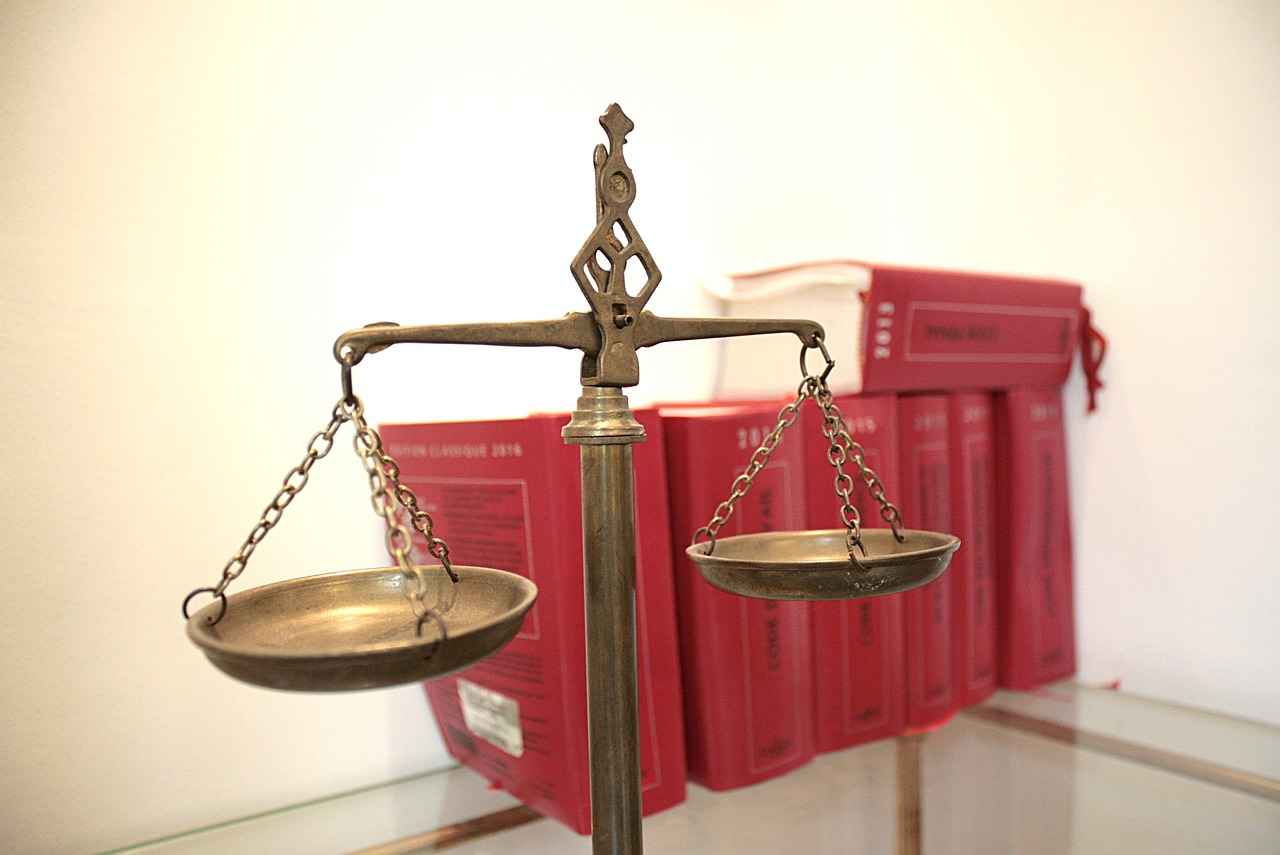
Domestic Violence: Seeking Protection and Justice
Domestic violence is a grave issue that affects countless individuals and families across the United States. It is essential to understand that cases of domestic violence require sensitive handling and legal expertise. Victims often find themselves in vulnerable situations, and having the right legal support can make a significant difference in their safety and ability to seek justice.
When it comes to domestic violence cases, hiring an attorney who specializes in this area is crucial. These attorneys possess the necessary experience to navigate the complexities of the law, ensuring that victims are protected and their rights are upheld. Here are some key points to consider when seeking legal representation in domestic violence cases:
- Experience in Domestic Violence Cases: Look for attorneys who have a proven track record in handling domestic violence cases. Their experience will allow them to understand the nuances of the law and how to best advocate for your needs.
- Knowledge of Local Laws: Laws regarding domestic violence can vary significantly from one state to another. An attorney familiar with the laws in your area will be better equipped to represent you effectively.
- Empathy and Understanding: It is vital to choose a lawyer who demonstrates empathy and understanding. This can help create a supportive environment where you feel comfortable discussing your situation.
- Resources and Support Systems: A competent attorney should also be able to connect you with resources such as shelters, counseling services, and support groups that can assist you during this challenging time.
To find the right attorney, consider the following methods:
- Referrals: Ask friends, family, or support groups for recommendations. Personal experiences can provide valuable insights.
- Online Directories: Websites like Avvo or FindLaw can help you search for attorneys based on their specialties and client reviews.
- Legal Aid Organizations: Many non-profit organizations provide legal assistance to victims of domestic violence. They can help connect you with qualified attorneys.
- Initial Consultations: Schedule consultations with potential attorneys to discuss your case. This will help you gauge their expertise and whether you feel comfortable working with them.
While looking for legal representation, be aware of red flags that may indicate a poor choice:
- Lack of Experience: Be cautious of attorneys who lack experience in domestic violence cases or who do not have a clear understanding of your state’s laws.
- Poor Communication: An attorney should be responsive and willing to communicate effectively. If they are difficult to reach or do not return calls promptly, it may be a sign of their commitment level.
- High Fees Without Transparency: Be wary of attorneys who do not provide clear information about their fees and billing practices. Understanding the financial aspects upfront is crucial.
- Negative Reviews: Take the time to read reviews and testimonials from previous clients. Consistent negative feedback can be a warning sign.
In conclusion, navigating the legal landscape of domestic violence can be daunting, but with the right attorney by your side, you can feel empowered to seek the protection and justice you deserve. Take your time to research and choose a lawyer who aligns with your needs, and remember that you are not alone—support is available.

Sexual Offenses: Defending Against Serious Allegations
Sexual offenses are among the most serious allegations one can face in the legal system. These cases not only carry severe legal consequences but also have profound social and emotional impacts on the accused, the victims, and their families. Given the gravity of such accusations, it is crucial to understand the legal landscape surrounding sexual offenses and the importance of having a competent attorney by your side.
Understanding Sexual Offenses
Sexual offenses encompass a wide range of criminal activities, including sexual assault, harassment, and exploitation. Each type of offense has its own legal definitions and implications, which can vary significantly from state to state. For instance, what constitutes sexual assault in one jurisdiction may not be classified the same way in another. Therefore, it is essential to consult with an attorney who specializes in sexual offense cases to navigate these complexities.
The Role of a Skilled Attorney
A skilled attorney plays a vital role in defending against allegations of sexual offenses. They will provide not only legal representation but also emotional support throughout the legal process. An experienced attorney will be well-versed in the nuances of sexual offense laws, understand the potential defenses available, and be able to formulate a strategy tailored to the specific circumstances of the case.
Finding the Right Attorney
When searching for an attorney to handle a sexual offense case, consider the following steps:
- Research Credentials: Look for attorneys who specialize in criminal defense, particularly those with experience in sexual offense cases. Check their educational background, years of practice, and any relevant certifications.
- Read Reviews: Online reviews and testimonials can provide insights into an attorney’s reputation and success rate. Websites like Avvo, Martindale-Hubbell, and Google Reviews are good starting points.
- Schedule Consultations: Many attorneys offer free initial consultations. Use this opportunity to discuss your case and gauge the attorney’s expertise, communication style, and overall approach.
- Ask About Case Experience: Inquire about the attorney’s experience with similar cases. A lawyer who has successfully defended clients against sexual offense charges will have valuable insights and strategies to employ in your defense.
- Evaluate Communication: Effective communication is crucial in any attorney-client relationship. Ensure that the attorney is responsive to your questions and concerns, as this will be essential throughout the legal process.
Red Flags to Avoid
While searching for an attorney, be mindful of potential red flags that may indicate a lack of professionalism or expertise:
- High Pressure Tactics: Be cautious of attorneys who pressure you into signing contracts or making quick decisions. A reputable lawyer will provide you with the time and space to make informed choices.
- Vague Promises: Avoid attorneys who make unrealistic promises or guarantees about the outcome of your case. Legal outcomes can be unpredictable, and a good attorney will provide honest assessments.
- Lack of Transparency: If an attorney is unwilling to discuss fees, strategies, or case details, this may be a sign of unprofessionalism. A trustworthy attorney will be open about their processes and fees.
Conclusion
In the face of serious allegations such as sexual offenses, having the right legal representation is paramount. By understanding the complexities of these cases and following the outlined steps to find a qualified attorney, individuals can better navigate the legal landscape and work towards a favorable outcome.
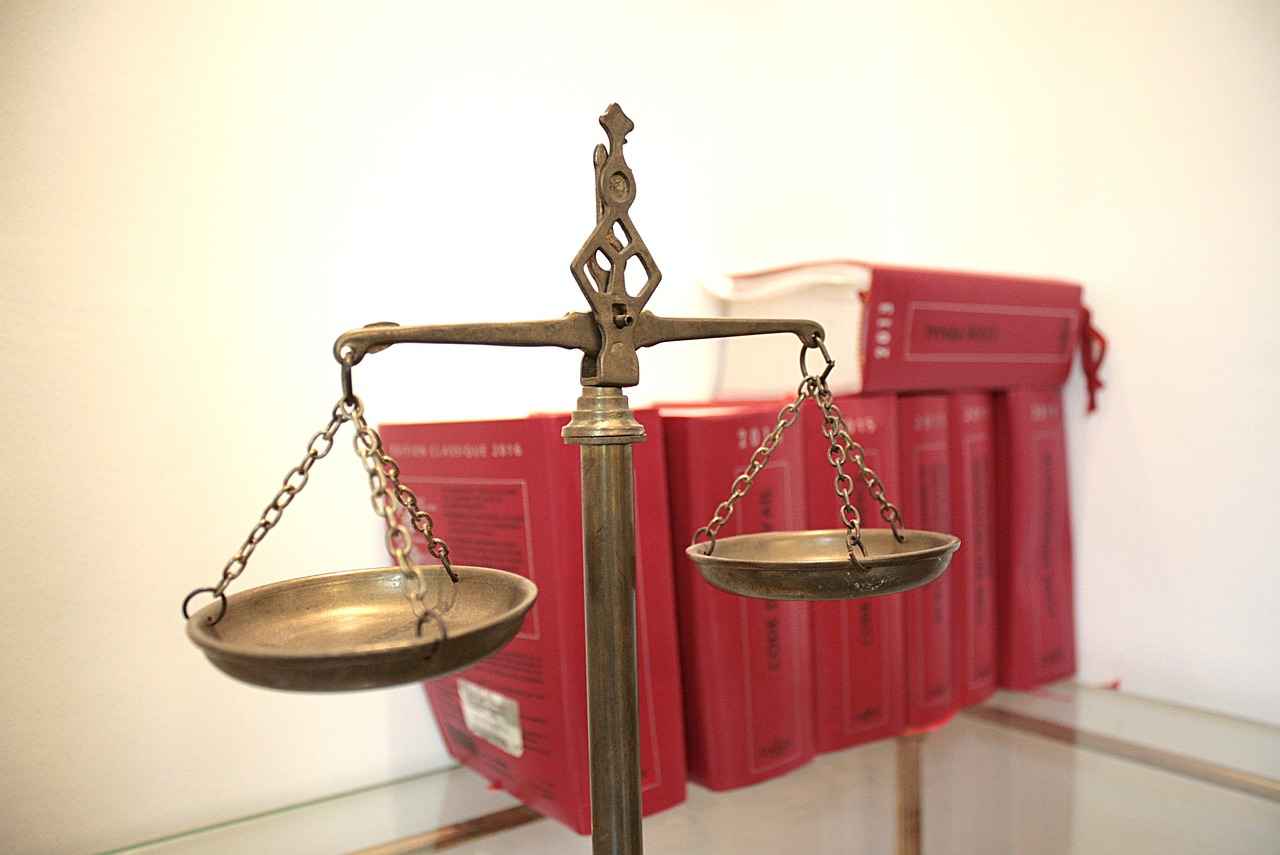
Cybercrime: Understanding the Digital Legal Landscape
In today’s digital age, cybercrime has emerged as a pressing concern, encompassing a wide range of illegal activities conducted online. From identity theft to hacking and online fraud, the internet offers a platform for various criminal behaviors that can have devastating effects on individuals and businesses alike. Understanding the complexities of cybercrime is essential for anyone navigating this digital landscape.
What is Cybercrime?
Cybercrime refers to criminal activities that involve computers and networks. These can include:
- Identity Theft: Unauthorized use of someone’s personal information.
- Phishing: Fraudulent attempts to obtain sensitive information via deceptive emails.
- Hacking: Unauthorized access to systems or data.
- Online Fraud: Scams conducted over the internet, including auction fraud and advance-fee scams.
- Cyberbullying: Harassment or bullying that occurs through digital platforms.
Why You Need a Cybercrime Attorney
Given the intricacies of cyber law, hiring an attorney with expertise in this field is crucial. A skilled cybercrime attorney can assist in:
- Understanding Your Rights: They can help you comprehend your legal rights and options if you are a victim of cybercrime.
- Navigating Complex Cases: Cybercrime cases often involve multiple jurisdictions and complex legal frameworks, requiring specialized knowledge.
- Defending Against Accusations: If you are accused of cybercrime, a knowledgeable attorney can provide a robust defense.
How to Find the Best Cybercrime Lawyer
Finding the right attorney to handle cybercrime cases requires careful consideration. Here are some steps to follow:
- Seek Specialized Experience: Look for attorneys who specialize in internet law and have a proven track record in handling cybercrime cases.
- Check Credentials: Verify their qualifications, including education, certifications, and membership in relevant legal associations.
- Read Reviews and Testimonials: Look for client feedback on platforms like Avvo, Martindale-Hubbell, and Google Reviews.
- Consultations: Many attorneys offer free initial consultations. Use this opportunity to assess their understanding of your situation and their communication style.
- Ask About Their Approach: Inquire about their strategies for handling cybercrime cases and how they stay updated on evolving cyber laws.
Red Flags to Avoid
While searching for a cybercrime attorney, be wary of the following red flags:
- Vague Promises: Be cautious of attorneys who guarantee specific outcomes or make unrealistic promises.
- Lack of Transparency: Avoid lawyers who are not clear about their fees or who seem evasive when discussing their experience.
- Negative Reviews: Pay attention to consistent negative feedback regarding their services, communication, or ethics.
Conclusion
Cybercrime is a complex and evolving field that requires expert legal guidance. By understanding the types of cybercrimes, the importance of hiring a specialized attorney, and the methods to find the right legal representation, individuals can protect themselves and navigate the digital legal landscape more effectively.

White Collar Crime: Navigating Complex Legal Issues
White collar crime refers to non-violent offenses committed for financial gain, typically by individuals, businesses, or government officials. These crimes can include fraud, embezzlement, money laundering, and insider trading. Understanding the complexities of white collar crime is essential for anyone facing allegations or seeking to protect their interests in such matters.
Finding a qualified attorney who specializes in white collar crime is crucial. Here are some expert-level insights on how to navigate this intricate legal landscape:
White collar crimes often involve deceit and manipulation rather than physical violence. They can significantly impact victims, including individuals, businesses, and entire economies. The legal implications are severe, with potential penalties including hefty fines and prison sentences. Therefore, it is vital to have a strong legal advocate who can navigate the complexities of these cases.
When searching for a lawyer to handle white collar crime cases, consider the following:
- Specialization: Look for attorneys who specialize in white collar crime or financial fraud. Their expertise in navigating the specific laws and regulations will prove invaluable.
- Experience: Choose a lawyer with a proven track record in handling similar cases. An attorney with extensive experience will understand the nuances of the legal system and how to effectively advocate for your rights.
- Reputation: Research the attorney’s reputation within the legal community. Look for reviews, testimonials, and any disciplinary actions. A well-respected attorney is more likely to have the skills necessary to represent you effectively.
- Consultation: Schedule consultations with potential attorneys. This allows you to gauge their understanding of your case and their approach to handling it. Pay attention to how they communicate and whether they listen to your concerns.
Utilize various platforms to find qualified attorneys:
- Legal Directories: Websites like Avvo and FindLaw provide listings of attorneys by specialty and location. These platforms often include reviews and ratings from previous clients.
- State Bar Associations: Check your state’s bar association website for a list of licensed attorneys. Many states also provide resources for verifying an attorney’s credentials and any disciplinary history.
- Referrals: Ask for referrals from friends, family, or colleagues who have had positive experiences with attorneys. Personal recommendations can often lead to finding trustworthy legal representation.
While seeking legal representation, be vigilant for potential red flags:
- Unclear Fee Structures: Be cautious of attorneys who do not provide clear information about their fees or who demand large upfront payments without a detailed contract.
- Lack of Communication: If an attorney is unresponsive or fails to communicate effectively during initial consultations, it may indicate how they will handle your case.
- Overpromising Results: Be wary of lawyers who guarantee specific outcomes. Legal cases can be unpredictable, and any attorney who promises a particular result may not be acting ethically.
In conclusion, navigating the complexities of white collar crime requires a knowledgeable and experienced attorney. By understanding the nature of these crimes, knowing how to find qualified legal representation, and being aware of potential red flags, individuals can better protect their rights and interests in these challenging situations.

Divorce: Navigating the Legal Process
Divorce cases can be emotionally charged and legally complex. The process often involves not only the dissolution of a marriage but also the division of assets, child custody arrangements, and spousal support considerations. Finding a compassionate and experienced family law attorney is crucial for navigating this challenging process.
When seeking legal representation, it is essential to understand the nuances of divorce law and the specific qualifications to look for in a lawyer. Here are some expert tips to help you find the right attorney for your divorce case:
- Research Specialization: Look for attorneys who specialize in family law, particularly divorce cases. Their expertise in this area will ensure they are familiar with the local laws and regulations.
- Check Credentials: Verify the attorney’s qualifications, including their education, bar association membership, and any additional certifications in family law.
- Read Reviews: Online reviews and testimonials can provide insight into the attorney’s reputation and the experiences of previous clients.
- Initial Consultation: Schedule a consultation to discuss your case. This meeting will allow you to gauge the attorney’s communication style, empathy, and understanding of your situation.
- Discuss Fees: Understand the attorney’s fee structure, including hourly rates and retainer fees. Transparency in billing practices is essential to avoid unexpected costs.
- Assess Compatibility: A divorce can be a lengthy process, and having a lawyer you feel comfortable with is vital. Ensure that you can communicate openly with your attorney.
In major metropolitan areas like New York City, Los Angeles, and Chicago, the demand for family law attorneys is high. Utilize local bar association directories and legal aid resources to find qualified professionals in your area. Additionally, consider leveraging platforms like Avvo or FindLaw to compare attorneys based on their ratings, experience, and areas of focus.
Be wary of red flags when hiring a divorce attorney. These include:
- High-Pressure Tactics: If an attorney pressures you to sign agreements or make decisions quickly, it may be a sign of unethical practices.
- Lack of Communication: An attorney who is difficult to reach or does not respond promptly to your inquiries may not prioritize your case.
- Unclear Fee Structure: If an attorney cannot provide clear information about their fees and billing practices, consider it a warning sign.
Finally, remember that divorce is not just a legal process; it is also a personal journey. Finding an attorney who understands your emotional needs and can advocate for your best interests is paramount. With the right legal representation, you can navigate the complexities of divorce and work towards a resolution that supports your future.
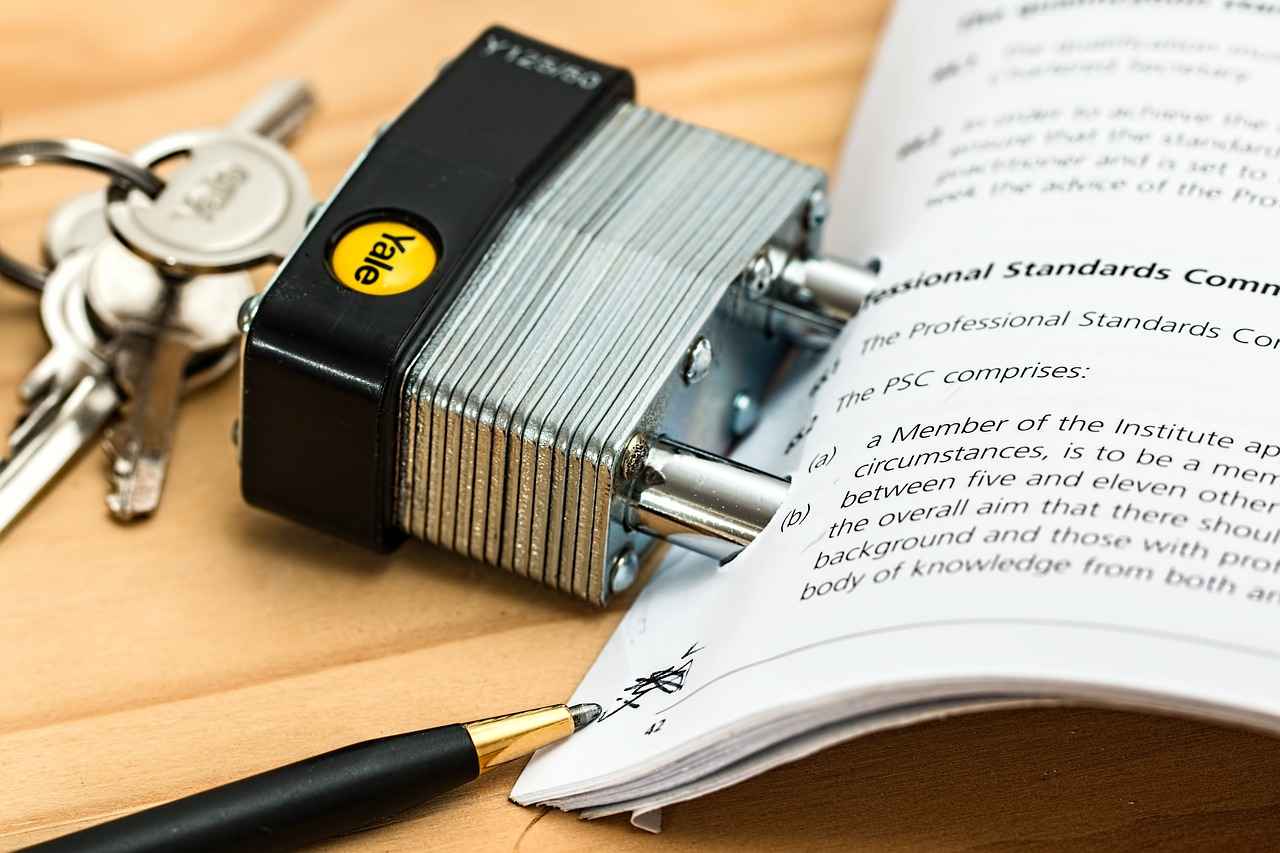
Child Custody: Advocating for Your Child’s Best Interests
Child custody disputes can be emotionally charged and legally complex. When parents separate or divorce, the well-being of their children becomes the primary concern. It is essential to navigate these disputes with care and expertise. An attorney who specializes in family law can serve as a vital advocate for your child’s best interests during custody proceedings. This article discusses the importance of hiring a qualified attorney, the legal considerations involved, and practical steps to take when seeking custody of your child.
Understanding Child Custody Types
- Legal Custody: This refers to the right to make significant decisions about your child’s life, including education, healthcare, and religious upbringing.
- Physical Custody: This pertains to where the child lives and how much time they spend with each parent.
- Sole Custody: One parent has full custody rights, while the other may have limited or no visitation rights.
- Joint Custody: Both parents share custody rights, allowing for collaborative decision-making and shared living arrangements.
Why Hire a Family Law Attorney?
Engaging a family law attorney is crucial for several reasons:
- Expertise: Family law attorneys have in-depth knowledge of custody laws and procedures specific to your state.
- Advocacy: They can advocate for your rights and the best interests of your child, presenting your case effectively in court.
- Mediation Skills: Many custody disputes can be settled outside of court through mediation, which a skilled attorney can facilitate.
Finding the Right Attorney
When searching for a qualified family law attorney, consider the following strategies:
- Referrals: Ask friends, family, or colleagues for recommendations. Personal experiences can guide you to trustworthy professionals.
- Online Research: Utilize legal directories and review platforms such as Avvo, Martindale-Hubbell, or FindLaw to compare attorneys’ qualifications and client reviews.
- Consultation: Schedule initial consultations with potential attorneys to discuss your case and assess their approach and compatibility.
What to Look for in an Attorney
While interviewing potential attorneys, pay attention to the following credentials and characteristics:
- Experience: Look for attorneys with a proven track record in child custody cases.
- Communication Skills: Your attorney should communicate clearly and be responsive to your questions and concerns.
- Reputation: Research their standing in the legal community and any disciplinary actions that may have occurred.
Red Flags to Avoid
Be cautious of the following warning signs when selecting an attorney:
- Lack of Transparency: If an attorney is unwilling to discuss fees or the details of your case, consider it a red flag.
- Negative Reviews: Pay attention to consistently negative feedback from former clients.
- High Pressure Tactics: Be wary of attorneys who pressure you into making quick decisions without allowing you to consider your options.
The Custody Process
Once you have hired an attorney, the custody process typically involves several steps:
- Filing a Petition: Your attorney will help you file the necessary legal documents to initiate the custody proceedings.
- Gathering Evidence: Collecting relevant documents, witness statements, and other evidence to support your case is crucial.
- Court Hearings: Be prepared to attend court hearings where both parties present their cases. Your attorney will advocate on your behalf.
- Negotiation: Many custody disputes are resolved through negotiation or mediation. Your attorney will guide you through this process.
Conclusion
In child custody cases, having an experienced attorney can make a significant difference in the outcome. They will help you navigate the complexities of the legal system while advocating for your child’s best interests. By understanding the types of custody, the importance of legal representation, and how to find the right attorney, you can approach your custody dispute with confidence and clarity.

Child Support: Ensuring Fair Financial Support
Child support is a crucial aspect of family law, ensuring that children receive the financial support they need from both parents after separation or divorce. Understanding the legal framework surrounding child support can be complex, but it is essential for securing fair arrangements that prioritize the well-being of the child.
In the United States, child support laws vary by state, but the underlying principle remains the same: both parents are responsible for providing for their children’s needs. Typically, child support is calculated based on several factors, including the income of both parents, the number of children, and the specific needs of each child. Courts often use state guidelines to determine the appropriate amount, which can include expenses for education, healthcare, and basic living costs.
When navigating child support cases, hiring a knowledgeable attorney is vital. An experienced lawyer can guide you through the legal process, ensuring that your rights are protected and that any agreements made are fair and enforceable. Here are some practical steps to take when searching for a qualified attorney:
- Research Local Attorneys: Start by looking for family law attorneys in your area. Online platforms like Avvo and FindLaw can provide listings and reviews of lawyers specializing in child support.
- Check Credentials: Look for attorneys who are members of professional organizations, such as the American Bar Association or local family law associations. These memberships often indicate a commitment to ongoing education and ethical practices.
- Read Reviews: Client testimonials can offer insights into an attorney’s effectiveness and approach. Pay attention to feedback regarding their communication skills and success in similar cases.
- Schedule Consultations: Many attorneys offer free initial consultations. Use this opportunity to ask about their experience with child support cases, their approach to negotiation, and how they plan to advocate for your interests.
- Discuss Fees: Understanding the attorney’s fee structure is crucial. Some attorneys charge hourly rates, while others may offer flat fees for specific services. Ensure you are clear on what services are included in the fee.
It’s also important to be aware of potential red flags when hiring an attorney. Be cautious of lawyers who make unrealistic promises about outcomes or pressure you into making quick decisions. A reputable attorney will provide honest assessments and allow you to make informed choices.
In addition to hiring an attorney, being prepared with documentation can significantly impact your case. Gather financial records, proof of income, and any relevant information about your child’s needs. This preparation will help your attorney build a strong case on your behalf.
Furthermore, understanding the modification process is crucial. Child support arrangements can change due to shifts in circumstances, such as job loss or changes in the child’s needs. Knowing how to navigate these modifications with the help of an attorney can ensure that support remains fair and adequate.
In conclusion, navigating child support cases requires an understanding of legal obligations and the ability to advocate for your child’s best interests. By taking the time to find a qualified attorney and preparing adequately, you can ensure that you are effectively addressing your child’s financial needs.

Spousal Support (Alimony): Understanding Your Rights
In the aftermath of a divorce, one of the most critical issues that arises is spousal support, commonly referred to as alimony. This financial support is designed to assist a lower-earning or non-working spouse in maintaining a standard of living similar to what they experienced during the marriage. Understanding your rights and responsibilities regarding spousal support can be complex, but it is essential for both parties involved.
When it comes to spousal support, several factors come into play. Courts typically consider the duration of the marriage, the financial needs of the requesting spouse, the ability of the other spouse to pay, and the standard of living established during the marriage. Additionally, age, health, and any contributions made to the marriage, such as homemaking or supporting the other spouse’s education, may also influence the court’s decision.
To navigate the complexities of alimony, hiring a skilled attorney is crucial. An experienced lawyer can help you understand the laws in your state, which can vary significantly. For instance, some states have guidelines that dictate the duration and amount of spousal support based on the length of the marriage, while others allow judges more discretion in determining the terms. This legal expertise is invaluable, especially in major metropolitan areas like New York City, Los Angeles, and Chicago, where the legal landscape can be particularly intricate.
When searching for the right attorney to assist with your spousal support case, consider the following tips:
- Research Credentials: Look for attorneys who specialize in family law and have a strong track record in handling spousal support cases. Check their credentials and any relevant certifications.
- Read Reviews: Online reviews and testimonials can provide insight into an attorney’s reputation and past client experiences. Look for patterns in feedback regarding their communication and success rates.
- Consult Multiple Attorneys: Schedule consultations with several attorneys to discuss your case. This will give you a sense of their approach and whether you feel comfortable working with them.
- Ask About Fees: Understand the fee structure before hiring an attorney. Some may charge hourly rates, while others might work on a flat fee basis. Ensure you are clear about any additional costs that may arise.
- Assess Communication: A good attorney should be responsive and willing to explain legal concepts in a way that you understand. Effective communication is vital for a successful attorney-client relationship.
While navigating the world of spousal support can feel overwhelming, understanding your rights and working with a qualified attorney can significantly ease the process. It is essential to approach the situation with a clear understanding of your needs and the legal framework surrounding alimony. By doing so, you can ensure that your rights are protected and that you receive the support necessary to move forward post-divorce.

Adoption: Navigating the Legal Process
Adoption is a profound and life-changing decision that involves a series of legal procedures to establish a formal parent-child relationship. This process can be both exciting and daunting, as it encompasses various legal, emotional, and social considerations. It is essential to understand the complexities involved and seek the guidance of an experienced attorney who specializes in adoption law to navigate through the necessary steps effectively.
The adoption process typically begins with an application to the appropriate state agency or court. This application includes a detailed background check, home study, and various assessments to ensure that the prospective adoptive parents are suitable for the responsibility of raising a child. An attorney can assist in preparing these documents, ensuring that all legal requirements are met, and that the process is as smooth as possible.
In addition to the initial application, there are several types of adoptions to consider, including:
- Agency Adoption: Involves a licensed agency that facilitates the adoption process.
- Independent Adoption: Arranged directly between the birth parents and adoptive parents without an agency.
- International Adoption: Involves adopting a child from another country, which can have additional legal complexities.
- Stepparent Adoption: A stepparent may adopt their partner’s child, which typically involves less legal scrutiny.
Each type of adoption has its own set of laws and regulations, which can vary significantly from state to state. Therefore, it is vital to choose an attorney who is not only knowledgeable about adoption law but also familiar with the specific laws in your state. They can provide valuable insights into the requirements and potential challenges you may face during the process.
When searching for a qualified adoption attorney, consider the following tips:
- Look for Experience: Seek attorneys who specialize in family law and have significant experience in handling adoption cases.
- Check Credentials: Verify their education, bar association membership, and any additional certifications in family law.
- Read Reviews: Look for testimonials and reviews from previous clients to gauge their success and client satisfaction.
- Schedule Consultations: Meeting with potential attorneys can help you assess their communication style, understanding of your needs, and overall compatibility.
- Discuss Fees: Understand the fee structure upfront, including any retainer fees, hourly rates, and additional costs involved in the adoption process.
In addition to these practical considerations, it is crucial to be aware of red flags when selecting an attorney. Avoid attorneys who:
- Promise Uncertain Outcomes: No attorney can guarantee a successful adoption; be wary of those who do.
- Pressure You to Make Quick Decisions: A reputable attorney will take the time to answer your questions and ensure you feel comfortable throughout the process.
- Have Poor Communication: If an attorney is hard to reach or does not respond promptly to your inquiries, it may indicate a lack of commitment to your case.
In summary, adoption is a significant legal process that requires careful consideration and expert guidance. By choosing a knowledgeable attorney who specializes in adoption law, you can navigate the complexities of this journey with confidence. With the right support, you can focus on the joy of welcoming a new member into your family while ensuring that all legal aspects are handled appropriately.

Paternity: Establishing Legal Parentage
Paternity cases are critical legal matters that establish the legal parentage of a child. These cases can arise for various reasons, including determining child support obligations, custody arrangements, and inheritance rights. Establishing paternity is essential not only for the child’s welfare but also for the legal rights of both parents.
To navigate the complexities of paternity law, it is crucial to seek the assistance of a knowledgeable attorney who specializes in family law. An experienced lawyer can guide you through the legal process, ensuring that your rights are protected and that the best interests of the child are prioritized.
In many cases, paternity can be established through voluntary acknowledgment by both parents, which is often done at the hospital when the child is born. However, if there are disputes regarding paternity, legal action may be necessary. This can involve DNA testing to confirm biological relationships, which is a common and reliable method used in courts.
It’s important to understand that paternity cases can also impact other areas of family law, such as child custody and child support. For instance, once paternity is established, the father may seek custody or visitation rights, or the mother may pursue child support. These matters can become contentious, making it essential to have a competent attorney by your side.
When searching for a qualified attorney to handle your paternity case, consider the following:
- Experience: Look for an attorney who specializes in family law and has a proven track record in paternity cases.
- Reputation: Research online reviews, testimonials, and referrals from friends or family to gauge the attorney’s reputation.
- Consultation: Many attorneys offer free initial consultations. Use this opportunity to ask questions and assess their approach to your case.
- Communication: Ensure the attorney communicates clearly and is responsive to your concerns. This is vital for a successful attorney-client relationship.
- Fees: Understand the attorney’s fee structure upfront. Some may charge hourly rates, while others may work on a flat-fee basis.
In metropolitan areas such as New York City, Los Angeles, and Chicago, there are numerous legal resources available. Utilize online platforms such as Avvo, FindLaw, or your local bar association’s referral service to find qualified attorneys in your area. Additionally, consider attending local family law workshops or seminars to meet potential lawyers and learn more about your rights and options.
Be cautious of red flags when hiring an attorney. Avoid lawyers who make unrealistic promises about the outcome of your case, those who pressure you into making quick decisions, or those who lack transparency regarding their fees and services. A reputable attorney should provide you with clear, honest information and allow you to make informed decisions regarding your legal matters.
Establishing paternity is a significant step in ensuring a child’s rights and the responsibilities of parents. By seeking the guidance of an experienced attorney, you can navigate this sensitive issue effectively and work towards a resolution that serves the best interests of all parties involved.

Guardianship: Protecting Vulnerable Individuals
Guardianship cases are critical legal arrangements designed to protect individuals who are unable to care for themselves due to various circumstances, such as age, disability, or mental incapacity. These cases often involve the appointment of a guardian to manage the personal and financial affairs of the individual in need, ensuring their well-being and safety. Given the sensitive nature of these cases, it is essential to navigate the legal landscape with the assistance of a qualified attorney who specializes in guardianship law.
When seeking legal representation for guardianship cases, it is crucial to consider several factors to ensure that you find the best attorney for your needs:
- Experience and Specialization: Look for attorneys who specialize in guardianship and elder law. Their experience will be invaluable in navigating the intricate legal requirements and ensuring that the rights of the vulnerable individual are protected.
- Reputation: Research potential attorneys by checking online reviews, testimonials, and their standing with local bar associations. A good reputation often indicates a track record of success in similar cases.
- Consultation: Schedule initial consultations to discuss your case. This will give you an opportunity to assess the attorney’s communication style, approach, and understanding of your specific situation.
- Fees and Costs: Understand the attorney’s fee structure. Some may charge hourly rates, while others may offer flat fees for guardianship cases. Ensure that you are comfortable with the financial aspects before proceeding.
- Personal Connection: Given the emotional nature of guardianship cases, it is essential to work with an attorney you feel comfortable with and who demonstrates empathy and understanding of your situation.
In metropolitan areas like New York City, Los Angeles, and Chicago, finding the right attorney can be more challenging due to the sheer number of legal professionals available. To streamline your search, consider using online legal platforms such as Avvo or FindLaw, which provide directories of attorneys categorized by practice area and location. These platforms often include client reviews and ratings, making it easier to gauge the quality of potential candidates.
It is also wise to be aware of red flags when hiring an attorney for guardianship cases. For instance, if an attorney pressures you to make quick decisions or seems more interested in their fees than your case, it may be a sign to look elsewhere. Additionally, avoid attorneys who lack clear communication or fail to provide a comprehensive explanation of the guardianship process.
In conclusion, guardianship cases require careful consideration and the right legal representation. By focusing on the factors outlined above and being vigilant about potential red flags, you can find a trustworthy attorney who will advocate for the best interests of the vulnerable individual involved.

Immigration Cases: Navigating Complex Regulations
Immigration cases represent one of the most intricate areas of law in the United States, often requiring specialized knowledge and experience. Navigating the complexities of immigration regulations can be overwhelming for individuals and families seeking to secure their status, whether through visas, green cards, or citizenship. Therefore, finding a qualified attorney experienced in immigration law is not just beneficial; it is essential for a successful outcome.
When searching for an immigration attorney, consider the following factors:
- Experience and Specialization: Look for attorneys who specialize in immigration law. Their expertise will be crucial in understanding the nuances of the law, including changes in policies and procedures.
- Reputation and Reviews: Research potential attorneys online. Websites like Avvo and Yelp provide client reviews and ratings that can give insight into an attorney’s track record.
- Consultation: Many immigration attorneys offer initial consultations. Use this opportunity to ask questions about their experience with cases similar to yours and their approach to handling them.
- Communication Skills: Effective communication is vital in legal matters. Ensure that your attorney can explain complex legal concepts clearly and is responsive to your inquiries.
- Fees and Payment Plans: Understand the attorney’s fee structure upfront. Some may offer flat fees for specific services, while others may charge hourly rates. Discuss payment plans if necessary.
In major metropolitan areas such as New York City, Los Angeles, and Chicago, you can find numerous immigration attorneys. However, it is essential to narrow down your options based on the specific type of immigration case you have, such as family-based petitions, employment-based visas, or asylum applications. Each category can have unique requirements and processes, making specialized knowledge even more critical.
Additionally, be aware of red flags when hiring an immigration attorney:
- Unrealistic Promises: Be cautious of attorneys who guarantee outcomes. Immigration law is complex, and no attorney can assure a specific result.
- Lack of Transparency: If an attorney is not forthcoming about their fees, experience, or the process, consider it a warning sign.
- Pressure Tactics: Avoid attorneys who pressure you to make quick decisions. A reputable lawyer will give you the time and space to make informed choices.
Immigration law can be a challenging field, but with the right attorney by your side, you can navigate the process more effectively. Take your time to research and choose someone who will advocate for your best interests and help you achieve your immigration goals.
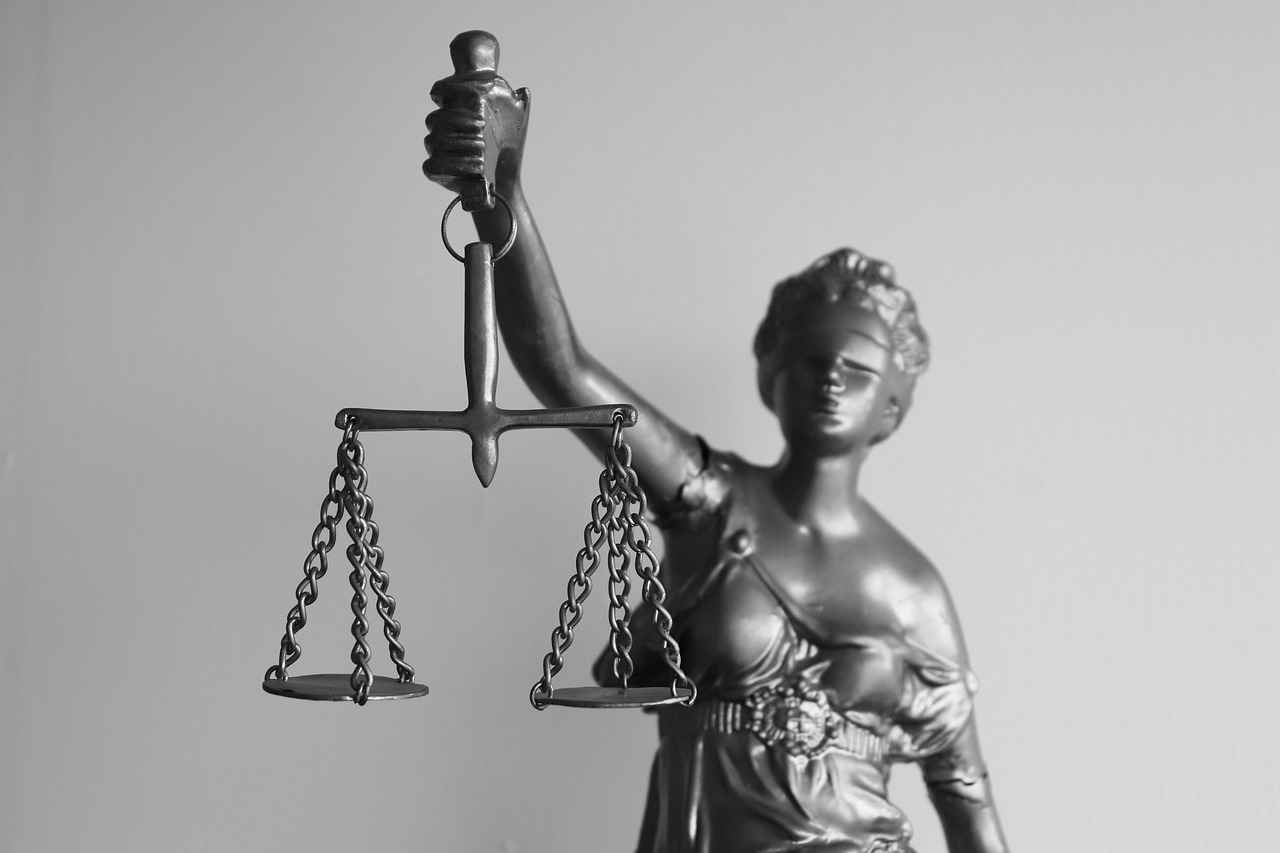
Bankruptcy: Understanding Your Options
Bankruptcy is a significant legal process that offers individuals and businesses a chance to reorganize or eliminate debts they cannot repay. Understanding the intricacies of bankruptcy law is essential for anyone considering this option. With the ever-changing financial landscape, having an experienced bankruptcy attorney by your side can make a world of difference in navigating the complexities of the system.
What Types of Bankruptcy Are Available?
In the United States, there are primarily three types of bankruptcy filings available for individuals:
- Chapter 7 Bankruptcy: This is often referred to as “liquidation bankruptcy.” It allows individuals to discharge most of their unsecured debts, such as credit card debt and medical bills, while liquidating non-exempt assets to pay creditors.
- Chapter 13 Bankruptcy: This type allows individuals to reorganize their debts and create a repayment plan that spans three to five years. It is particularly useful for those who have a regular income and wish to keep their assets.
- Chapter 11 Bankruptcy: Typically used by businesses, Chapter 11 allows for reorganization while continuing operations. Individuals with substantial debts may also file under this chapter.
How Can a Bankruptcy Attorney Help?
An experienced bankruptcy attorney can provide invaluable guidance throughout the bankruptcy process. Here are some ways they can assist:
- Assessing Your Financial Situation: A bankruptcy attorney will help you evaluate your financial circumstances and determine which chapter of bankruptcy is best suited for your needs.
- Preparing and Filing Paperwork: The bankruptcy process involves extensive documentation. An attorney ensures that all forms are completed accurately and filed on time to avoid delays.
- Representing You in Court: If your case requires a court appearance, having an attorney represent you can significantly improve your chances of a favorable outcome.
- Negotiating with Creditors: A skilled attorney can negotiate with creditors on your behalf, potentially reducing the amounts owed or establishing payment plans that are more manageable.
Finding the Right Bankruptcy Attorney
When searching for a bankruptcy attorney, especially in major metropolitan areas like New York City or Los Angeles, consider the following factors:
- Experience and Specialization: Look for attorneys who specialize in bankruptcy law and have a proven track record in handling cases similar to yours.
- Credentials and Reviews: Check for credentials such as board certification in bankruptcy law and read online reviews to gauge client satisfaction.
- Consultation Availability: Many attorneys offer free initial consultations. Use this opportunity to assess their approach and determine if they are a good fit for your needs.
- Transparent Fees: Ensure that the attorney provides clear information about their fees and any additional costs you may incur during the process.
Red Flags to Avoid
While searching for a bankruptcy attorney, be wary of the following red flags:
- High-Pressure Tactics: If an attorney pushes you to file for bankruptcy without fully understanding your situation, consider it a warning sign.
- Lack of Transparency: Avoid attorneys who are vague about their fees or the bankruptcy process.
- Poor Communication: If an attorney is difficult to reach or does not respond promptly to your inquiries, it may be a sign of their overall commitment to your case.
In conclusion, navigating bankruptcy can be a daunting task, but with the right attorney by your side, you can explore your options and find a path toward financial recovery. Whether you are in a bustling city or a quieter town, understanding the process and knowing what to look for in a bankruptcy attorney will empower you to make informed decisions.

Patent and Trademark Disputes: Protecting Intellectual Property
In today’s rapidly evolving technological landscape, intellectual property has become a critical asset for individuals and businesses alike. Patent and trademark disputes arise when there are legal conflicts over these valuable rights. Understanding how to navigate these disputes is essential for anyone looking to protect their innovations and brand identity.
When faced with a patent or trademark dispute, the first step is to hire an attorney with expertise in intellectual property law. This specialization is crucial because intellectual property law is intricate and requires a nuanced understanding of both federal and state regulations. An attorney experienced in this field can provide you with the necessary guidance to ensure your rights are safeguarded.
Here are some key points to consider when looking for legal representation in patent and trademark disputes:
- Specialization: Ensure that the attorney specializes in intellectual property law. This specialization is vital as it encompasses various aspects, including patents, trademarks, copyrights, and trade secrets.
- Experience: Look for an attorney with a proven track record in handling patent and trademark cases. Experienced lawyers are more likely to have encountered similar situations and can offer valuable insights.
- Reputation: Research the attorney’s reputation in the legal community. Online reviews, testimonials, and peer recommendations can provide a clearer picture of their practice.
- Communication: Choose an attorney who communicates clearly and effectively. You should feel comfortable discussing your case and asking questions.
- Fee Structure: Understand the attorney’s fee structure upfront. Some may work on a contingency basis, while others charge hourly rates. Make sure you are clear on what to expect financially.
In addition to these considerations, it’s essential to be aware of red flags that may indicate a less-than-reputable attorney. These can include:
- Overpromising Results: Be cautious of attorneys who guarantee specific outcomes. Legal cases, especially those involving intellectual property, can be unpredictable.
- Lack of Transparency: If an attorney is unwilling to discuss their fee structure or provide clear explanations about the legal process, it may be a sign to look elsewhere.
- Poor Communication: If you find it challenging to reach your attorney or receive timely responses, consider this a red flag.
In metropolitan areas like New York City, Los Angeles, and Chicago, there are numerous platforms available to help you find qualified attorneys. Websites such as Avvo, FindLaw, and Martindale-Hubbell provide directories of lawyers along with reviews and ratings. Additionally, local bar associations often have referral services that can connect you with reputable attorneys in your area.
Furthermore, attending local legal seminars or networking events can be beneficial for finding an attorney who specializes in patent and trademark disputes. Engaging with professionals in the field allows you to ask questions and gain insights into the legal landscape.
Ultimately, protecting your intellectual property is paramount in today’s competitive market. By following these guidelines and seeking the right legal representation, you can navigate the complexities of patent and trademark disputes with confidence.
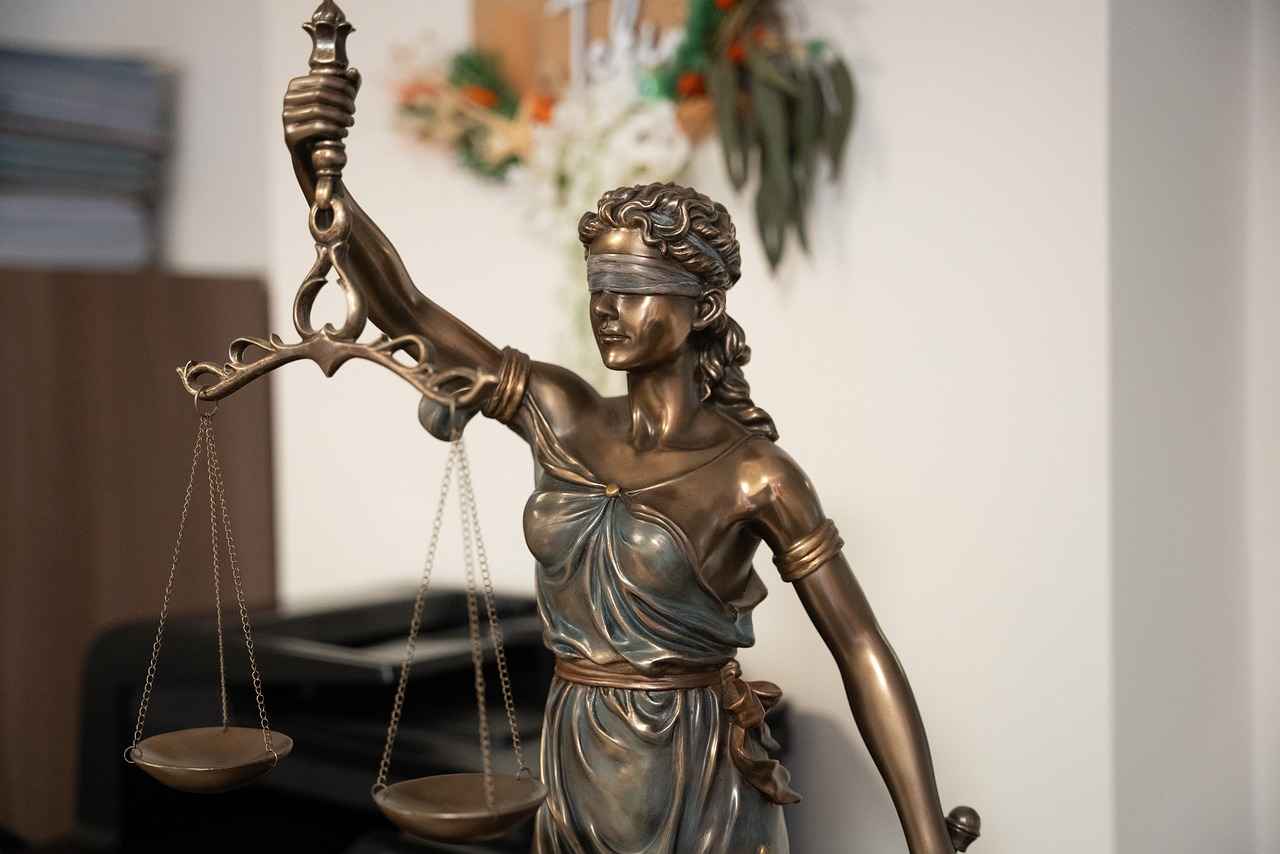
Federal Tax Disputes: Navigating Complex Regulations
Federal tax disputes represent a significant source of concern for individuals and businesses alike. These disputes often arise from disagreements with the Internal Revenue Service (IRS) regarding tax liabilities, deductions, or penalties. Navigating the intricate landscape of federal tax law can be daunting, which is why seeking the assistance of a knowledgeable tax attorney is essential. These legal professionals specialize in tax law and can provide invaluable guidance and representation.
In the realm of federal tax disputes, there are several common issues that taxpayers may encounter:
- Audit Challenges: Tax audits can be stressful and overwhelming. A skilled tax attorney can help you prepare for an audit by ensuring that your documentation is in order and by representing you during the audit process.
- Tax Liens and Levies: If the IRS believes you owe back taxes, they may place a lien on your property or levy your bank accounts. A tax attorney can negotiate with the IRS to potentially reduce or eliminate these actions.
- Appeals and Litigation: If you disagree with an IRS decision, you have the right to appeal. A tax attorney can guide you through the appeals process and represent you in court if necessary.
When searching for a qualified tax attorney, consider the following factors:
- Experience: Look for an attorney with extensive experience in handling federal tax disputes. Their familiarity with IRS procedures and regulations can make a significant difference in the outcome of your case.
- Credentials: Check for relevant credentials, such as membership in the American Bar Association or specialization in tax law. This indicates a commitment to staying updated on tax law changes.
- Client Reviews: Research client testimonials and reviews to gauge the attorney’s reputation and effectiveness. Positive feedback from previous clients can provide insight into their capabilities.
- Initial Consultation: Many tax attorneys offer a free initial consultation. Use this opportunity to discuss your case and assess whether you feel comfortable with their approach and expertise.
It is crucial to be aware of red flags when hiring a tax attorney. Avoid attorneys who make unrealistic promises, such as guaranteed outcomes or fees that seem too good to be true. Additionally, be cautious of those who do not take the time to explain the legal process or your options clearly.
In summary, federal tax disputes are complex and can have serious implications. Engaging a qualified tax attorney can significantly improve your chances of a favorable resolution. By considering their experience, credentials, client reviews, and maintaining a cautious approach, you can find the right legal representation to navigate these challenging waters.

Civil Rights Violations: Seeking Justice
Civil rights violations are serious breaches of individual rights that are protected by law. These violations can occur in various forms, including discrimination based on race, gender, age, disability, or sexual orientation. They can happen in numerous contexts, such as employment, housing, and education. Understanding your rights and the legal avenues available to you is crucial in seeking justice.
When faced with a civil rights violation, it is essential to consult with an attorney who specializes in civil rights law. An experienced lawyer will have a deep understanding of both federal and state laws, as well as the nuances that may apply to your specific situation. They can help you navigate the often-complex legal landscape, ensuring that your rights are protected and that you receive the justice you deserve.
To find the best civil rights attorney, consider the following steps:
- Research and Referrals: Start by asking for referrals from friends, family, or colleagues who may have had similar experiences. Online platforms like Avvo and Leagle can provide valuable insights into attorneys’ backgrounds and reviews.
- Check Credentials: Look for attorneys who are members of reputable organizations, such as the American Civil Liberties Union (ACLU) or the National Lawyers Guild. These affiliations often indicate a commitment to civil rights and social justice.
- Experience Matters: Ensure the attorney has substantial experience specifically in civil rights cases. This specialization is crucial, as civil rights law can be intricate and varies significantly from other legal fields.
- Consultation: Schedule an initial consultation to discuss your case. This meeting will allow you to gauge the attorney’s understanding of civil rights issues and their approach to handling your case.
- Assess Communication: A good attorney should communicate clearly and effectively. Pay attention to how they explain legal concepts and whether they listen to your concerns.
- Evaluate Fees: Understand the attorney’s fee structure upfront. Some may work on a contingency fee basis, meaning they only get paid if you win your case, while others may charge hourly rates or flat fees.
- Trust Your Instincts: Finally, trust your instincts when choosing an attorney. You should feel comfortable discussing your case and confident in their ability to represent you.
In major metropolitan areas like New York City, Los Angeles, and Chicago, finding a civil rights attorney can be more accessible due to the larger pool of legal professionals. However, the competition can also mean that you need to be more discerning in your selection process. Utilize local bar associations and legal aid organizations, which often provide resources and referrals for individuals seeking legal assistance.
In conclusion, civil rights violations are serious matters that require expert legal representation. By following the steps outlined above, you can find a qualified attorney who will advocate for your rights and help you pursue justice.
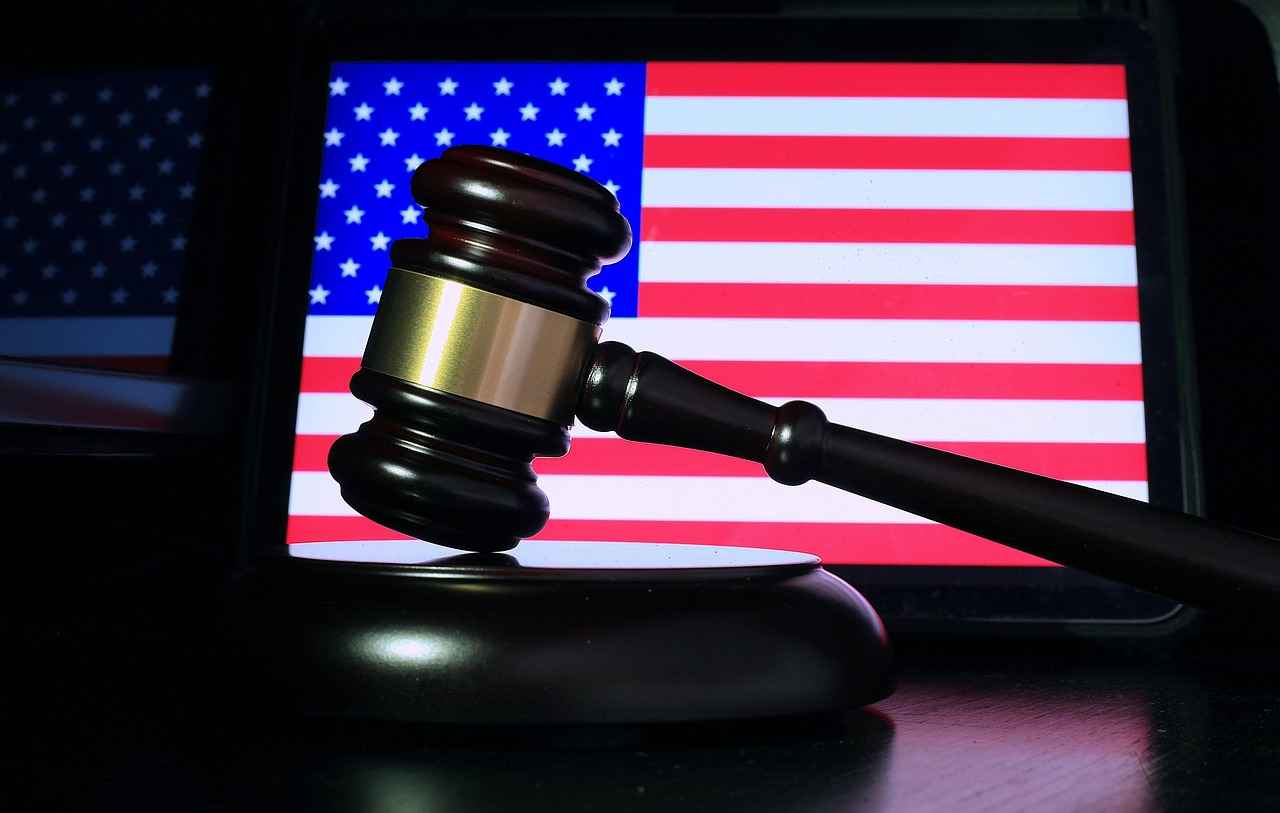
Interstate or International Crimes: Navigating Jurisdictional Complexities
Interstate or international crimes present unique challenges within the legal landscape, as they involve issues that transcend state or national borders. These types of crimes can include human trafficking, drug smuggling, cybercrime, and various forms of fraud that operate across jurisdictions. Understanding the legal complexities associated with these cases is crucial for anyone involved, whether as a defendant or a victim.
One of the primary challenges in interstate or international crimes is the jurisdictional issue. Jurisdiction refers to the authority of a court to hear a case, and in cases that cross borders, determining which court has jurisdiction can be complicated. Different states and countries have varying laws, and the interplay between these laws can lead to confusion and legal disputes. For example, if a crime is committed in one state but involves victims or perpetrators in another, multiple jurisdictions may claim the right to prosecute. This can result in a complicated legal battle over which court should handle the case.
Moreover, the enforcement of laws can differ significantly from one jurisdiction to another. In some cases, a crime may be considered a serious offense in one state but a minor violation in another. This disparity can influence the legal strategies employed by attorneys and can affect the outcomes of cases significantly. Therefore, it is essential to have a legal expert who understands the nuances of both state and federal laws when navigating these complex situations.
When looking for an attorney to handle interstate or international crime cases, consider the following tips:
- Specialization: Seek attorneys who specialize in criminal law, particularly those with experience in interstate or international cases. These professionals will be familiar with the intricacies of jurisdictional issues.
- Experience: Look for attorneys with a proven track record in handling similar cases. Their experience can provide invaluable insights into the legal process and potential outcomes.
- Reputation: Research the attorney’s reputation through online reviews, testimonials, and professional associations. A strong reputation often indicates reliability and competence.
- Consultation: Schedule initial consultations with potential attorneys to discuss your case. This meeting allows you to gauge their understanding of the issues and their approach to handling your case.
- Communication: Ensure that the attorney communicates clearly and effectively. A good attorney should be able to explain complex legal concepts in a way that is easy to understand.
Additionally, be cautious of red flags when hiring a legal professional. These may include:
- Lack of Transparency: If an attorney is unwilling to provide clear information about their fees, experience, or approach, consider it a warning sign.
- Overpromising Results: Be wary of attorneys who guarantee specific outcomes. Legal cases can be unpredictable, and responsible attorneys will provide realistic expectations.
- Poor Communication: If the attorney is difficult to reach or does not respond promptly to inquiries, it may indicate a lack of commitment to your case.
In conclusion, navigating interstate or international crimes requires a thorough understanding of the legal landscape and the complexities involved. By seeking qualified legal representation and being aware of potential pitfalls, individuals can better protect their rights and interests in these challenging situations.

Frequently Asked Questions
- What types of cases do lawyers in Dallas typically handle?
Lawyers in Dallas handle a wide range of cases, including personal injury, medical malpractice, breach of contract, property disputes, landlord-tenant issues, and more. They specialize in various fields to provide expert legal assistance tailored to your needs.
- How do I choose the right attorney for my case?
Choosing the right attorney involves considering their experience in your specific legal issue, checking their credentials, reading reviews, and scheduling consultations to gauge their compatibility with your needs. It’s essential to find someone who understands your situation and can advocate effectively on your behalf.
- What should I expect during a consultation with a lawyer?
During a consultation, you can expect to discuss the details of your case, ask questions about the lawyer’s experience, and understand their approach to your situation. It’s a great opportunity to determine if you feel comfortable with them and if they can effectively represent you.
- Are there any fees associated with hiring a lawyer in Dallas?
Yes, lawyers in Dallas may charge various fees, including hourly rates, flat fees, or contingency fees, depending on the case type. It’s crucial to discuss and understand the fee structure upfront to avoid any surprises later on.
- How long will my case take to resolve?
The duration of a case can vary significantly based on its complexity, the type of legal issue, and the court’s schedule. Some cases may resolve quickly, while others can take months or even years. Your attorney can provide a better estimate based on the specifics of your situation.














